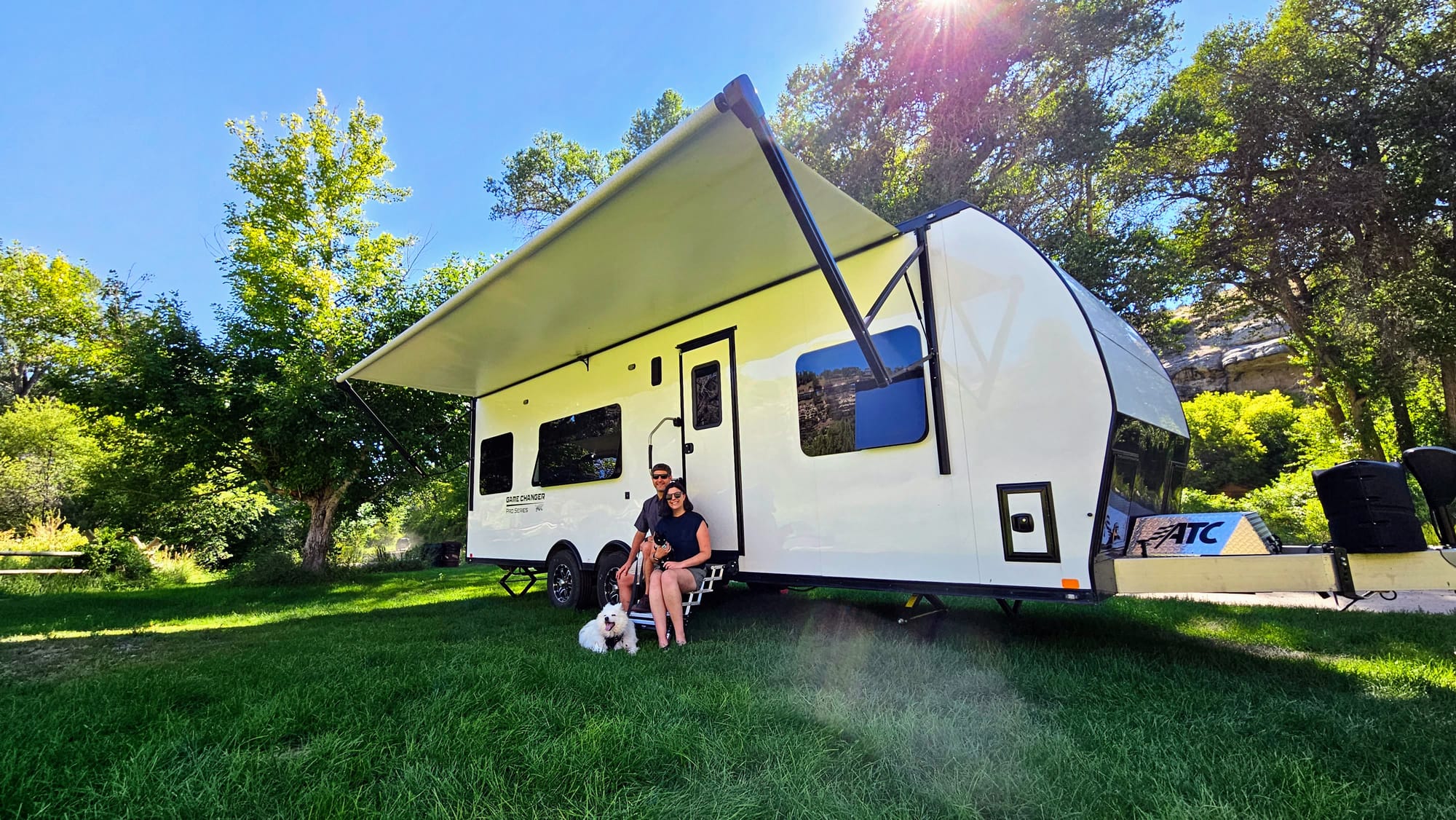Common RV advice we're glad we never took
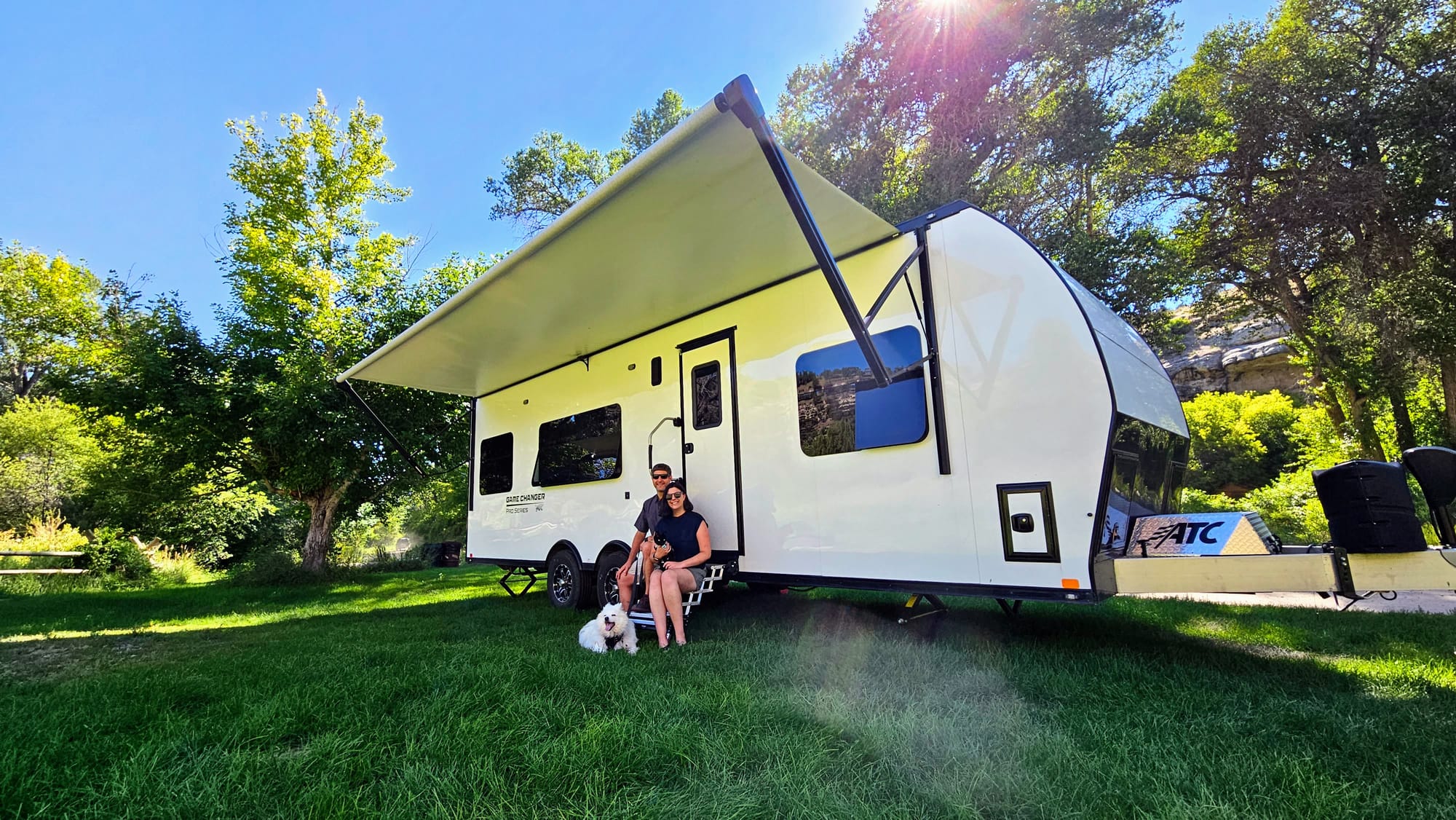
This blog post contains Amazon affiliate links. We may receive a small commission for products ordered through these links. Thank you for using these links to help support our blog!
We recently passed our 2.5-year mark of living in our RV, and to think we were total novices when we first started living this life is almost surreal. We might as well be different people now! One of our goals in hitting the road was to learn as much as possible about RVs, whether that's maintenance and repairs, maneuvering, or living functionally in a tiny space. A big part of that learning curve comes from experience, but the RV community is invaluable. No matter what issue we run into, we have RV pros, friends, and online forums where we can seek advice. Only, as we all know far too well, some advice, while well-meaning, might not actually be the best advice for you, in your unique circumstance. Sometimes it's best to "camp your own camp." We often make note of the good advice we've gotten over the years, and we certainly hope we've given good advice as well! But what about the advice we didn't take? The more we thought about this, the more our list grew. As we drafted this post, Anthony sent in for a Harvest Hosts guide on bad RV advice, and we laughed as we read it because a lot of the "bad advice" was the exact opposite of what we were writing!
So if you're looking for the standard advice-gone-wrong like what's in that guide, our blog post is not that. We're also not using this post as advice to other RVers, but we do hope that it opens your mind up to the many ways people can RV in a way that works for them.
"Rent an RV before you buy, so that way you know what you like and don't like."
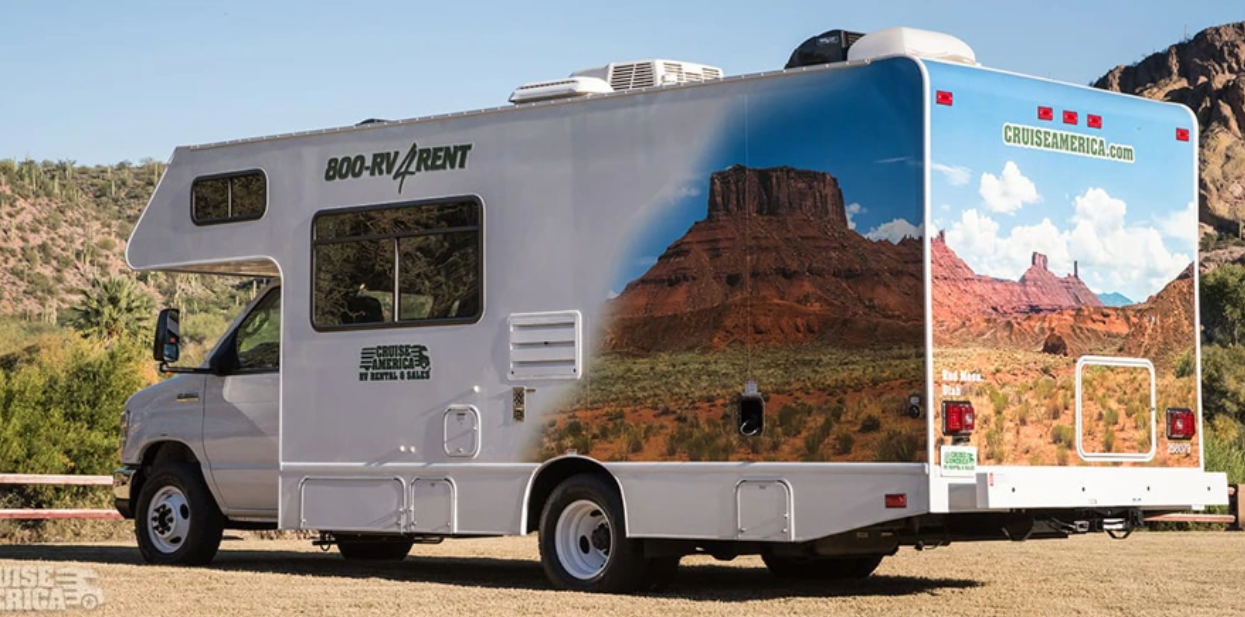
We had no experience with RVs until we bought our own (unless you count the time Nicole hung out in her friend's family's RV in their driveway). We did tons of research and narrowed our search down to an RV that had good bones but allowed us to build it out and make it our own. We quickly decided on a bumper pull and not a motorhome because we liked the idea of having a separate living space and the ability to drive a truck around town wherever we were stationed. We didn't need to rent an RV to decide what we wanted. In fact, many stories we've heard of people renting before they buy are horror stories! The RVs are run-down, the previous renter didn't clean out the black tank, you name it. But even if the rental is in perfect condition, it's probably not set up the way someone would want for full-time living. We couldn't fathom paying over $100/night for the rental alone and then adding the cost of campsites and fuel on top of that, just to have an experience that would in no way resemble our actual lives as RVers. Renting was a big no from us.

We were lucky; we made the right choice right out of the gate, and we've never found an RV that we would have preferred over our ATC Gamechanger Pro. We attribute this to our months of research and the fact that we were able to customize and modify our trailer to fit our needs. The high quality, superb customer service and 10-year structural warranty are nice bonuses, too.
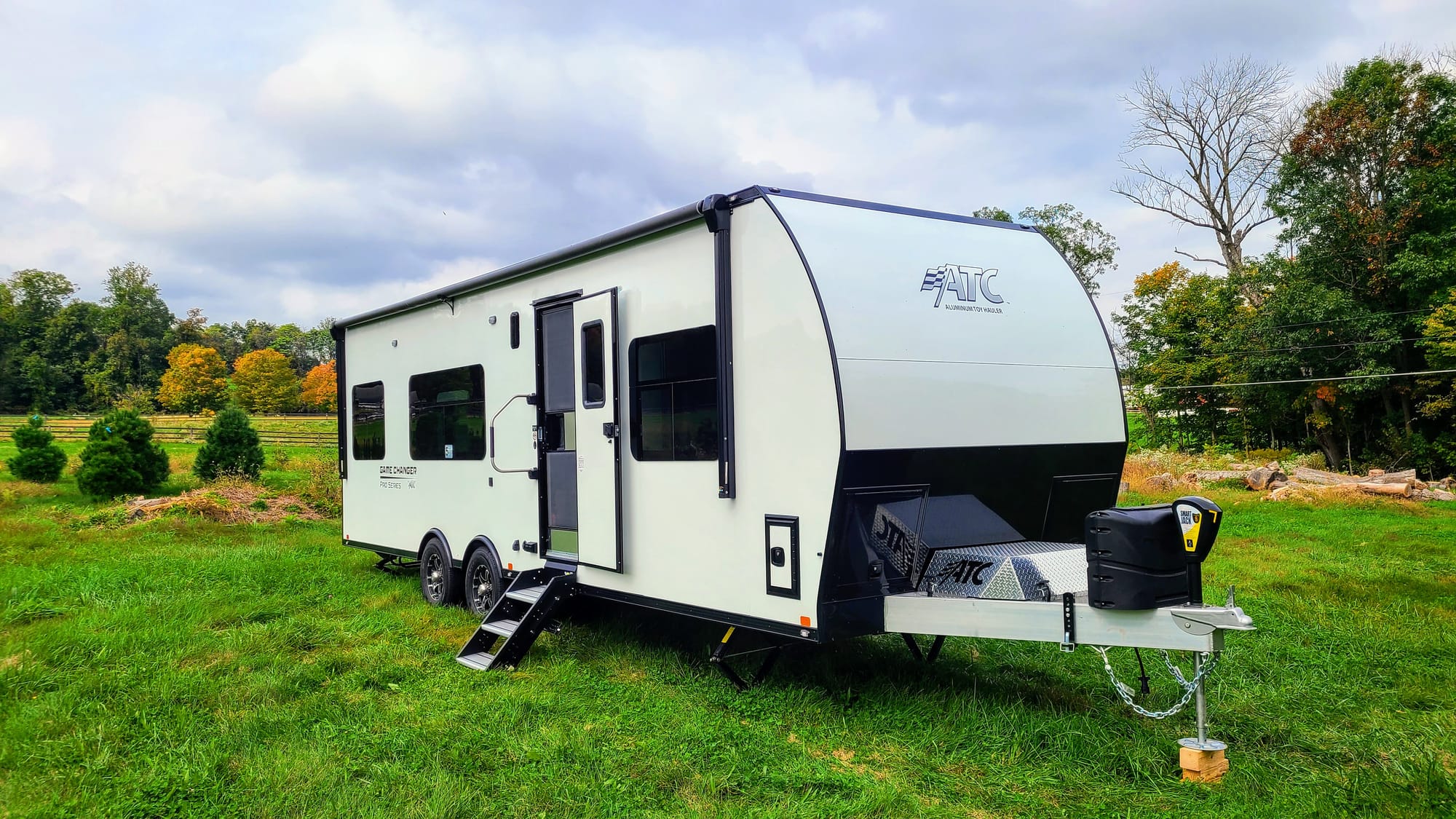
"If you're going full-time, make sure your RV is a four-season."
Some RVs are known as four-season, meaning that the insulation and equipment allow for camping in extreme temperatures. One of the first pieces of advice we got was to make sure our RV was four-season, so that it's suitable for full-time living. Our ATC Gamechanger Pro is considered three-season and has a lot less insulation than many other RVs. This has caused some problems with condensation on humid days and more heat coming in on those hot, sunny days, but we can still camp in extreme climates without issue. We have winter camped in sub-zero temperatures and have boondocked in 100+ degree temperatures. It's not always ideal, but we credit our equipment for getting us through these harsh times. We have tank and line heaters so our plumbing doesn't freeze. We have two air conditioners that work great. We've added extra insulation with cork underlayment, vinyl flooring, and rugs on our floor, and thick curtains on our ramp door. The only times the extreme temperatures have gotten the best of us is when one of those pieces of equipment breaks or goes faulty. Then we fix what needs to be fixed, and we're back up and running again.
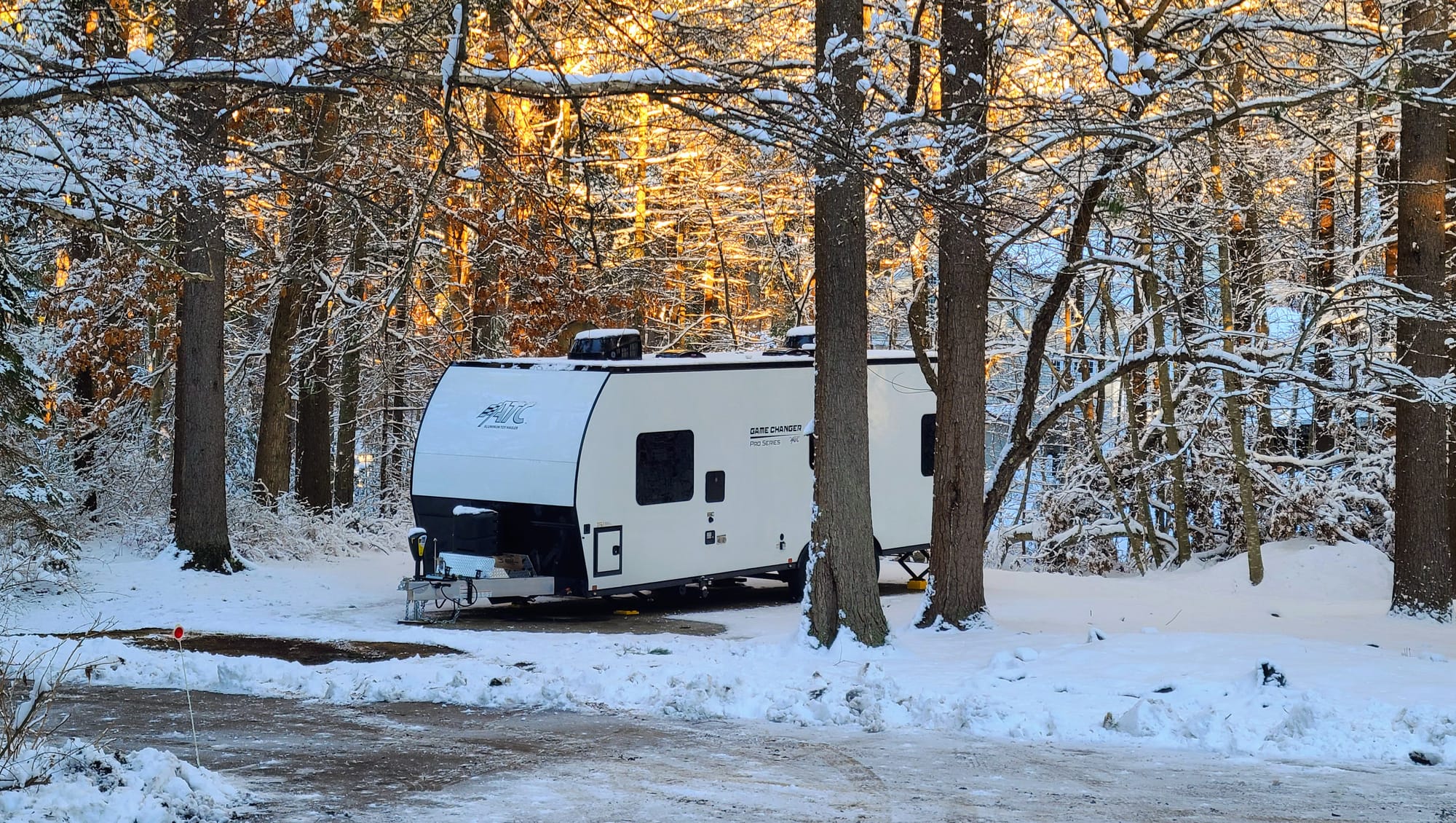

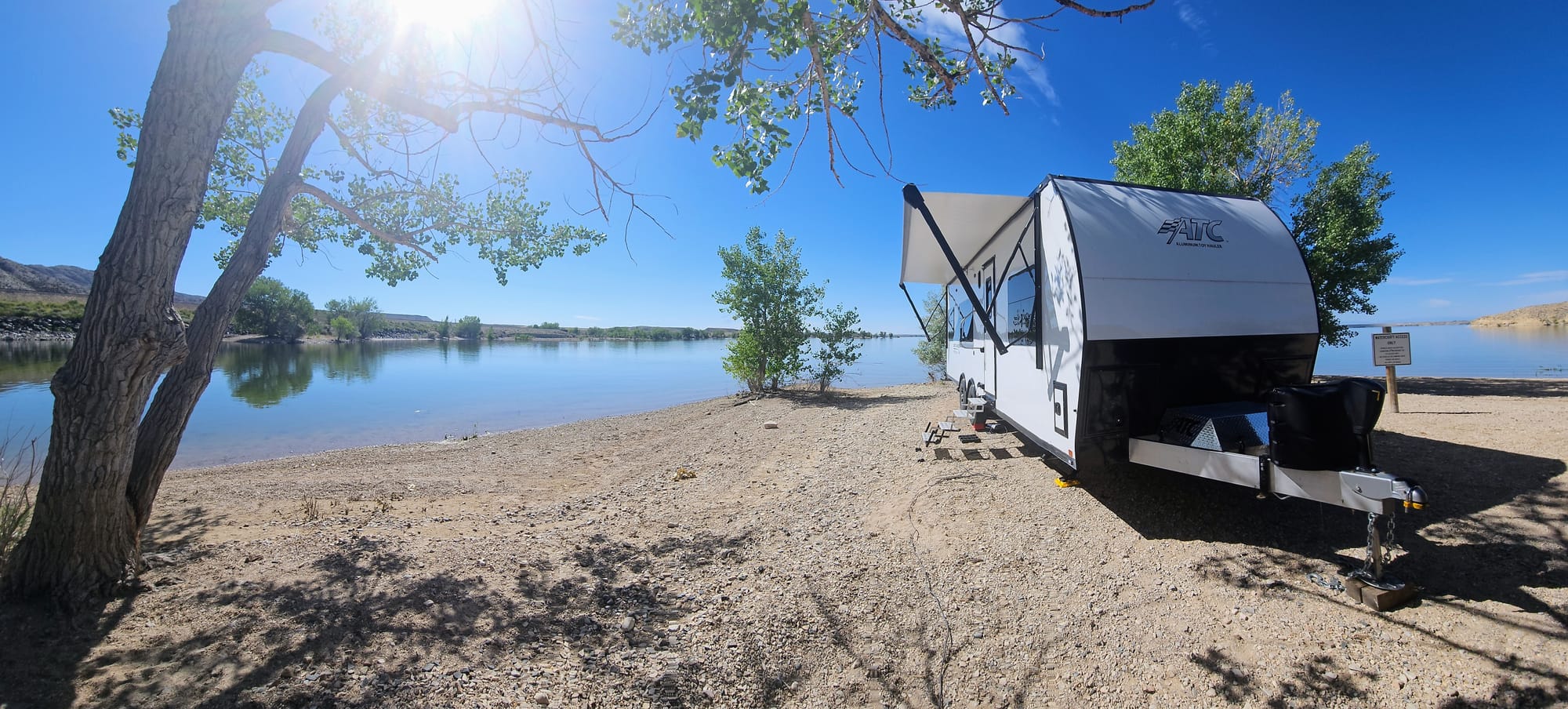
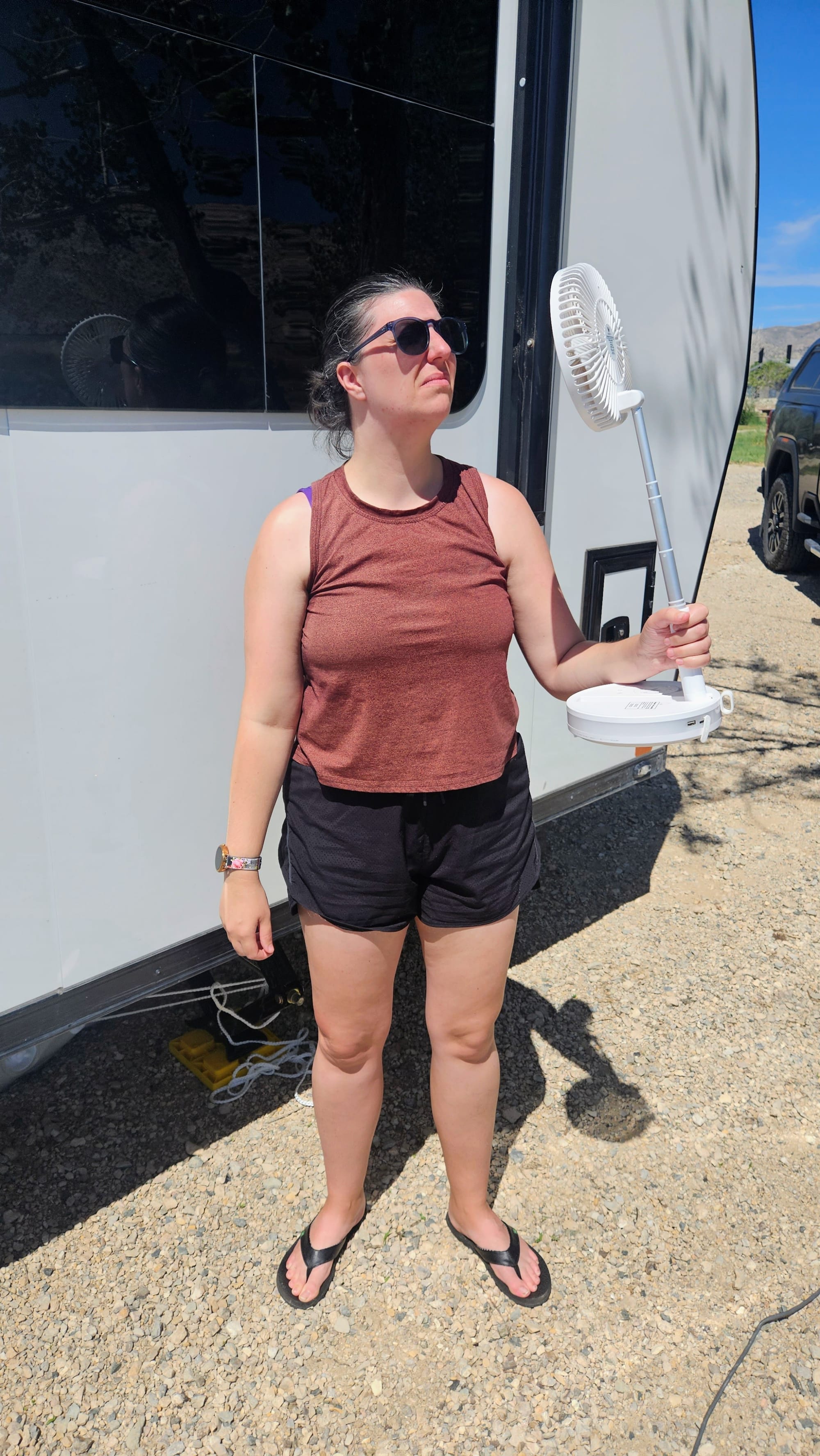
"Plan on replacing your stock mattress immediately."
This one is definitely unique to our situation. It is true that most RVs come with a stock mattress that's more for display and not actually for sleeping. In fact, many RVers are encouraging manufacturers to just stop putting in mattresses in the first place. It would be much more environmentally sound and would save everyone a lot of time and effort. However, our ATC came with a 6-inch Sealy mattress that is a real mattress! We added this Fuli Japanese mattress as a topper and it was super comfortable. Then once the topper wore out, we replaced it with a Dormeo topper. The Dormeo is comfortable, but it shifts around worse than any topper we've had (so much for its "anti-slip bottom"), so at the time of writing this, we are in the process of replacing it with yet another Fuli Japanese mattress. We don't know how long our Sealy mattress will hold out, but as of now, replacing the toppers occasionally has been more than sufficient, and much less expensive!
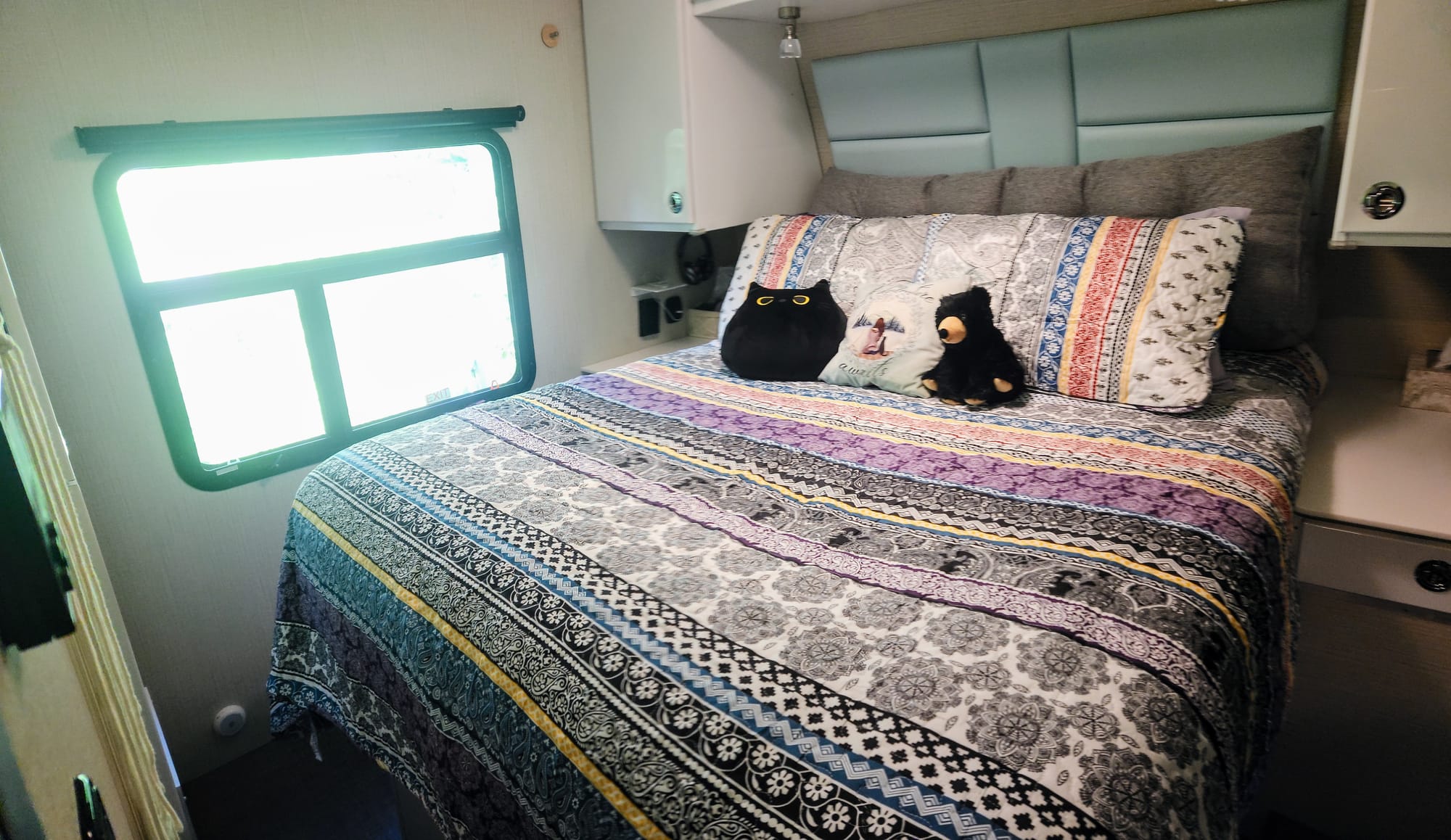
"Don't RV without a water pressure regulator."
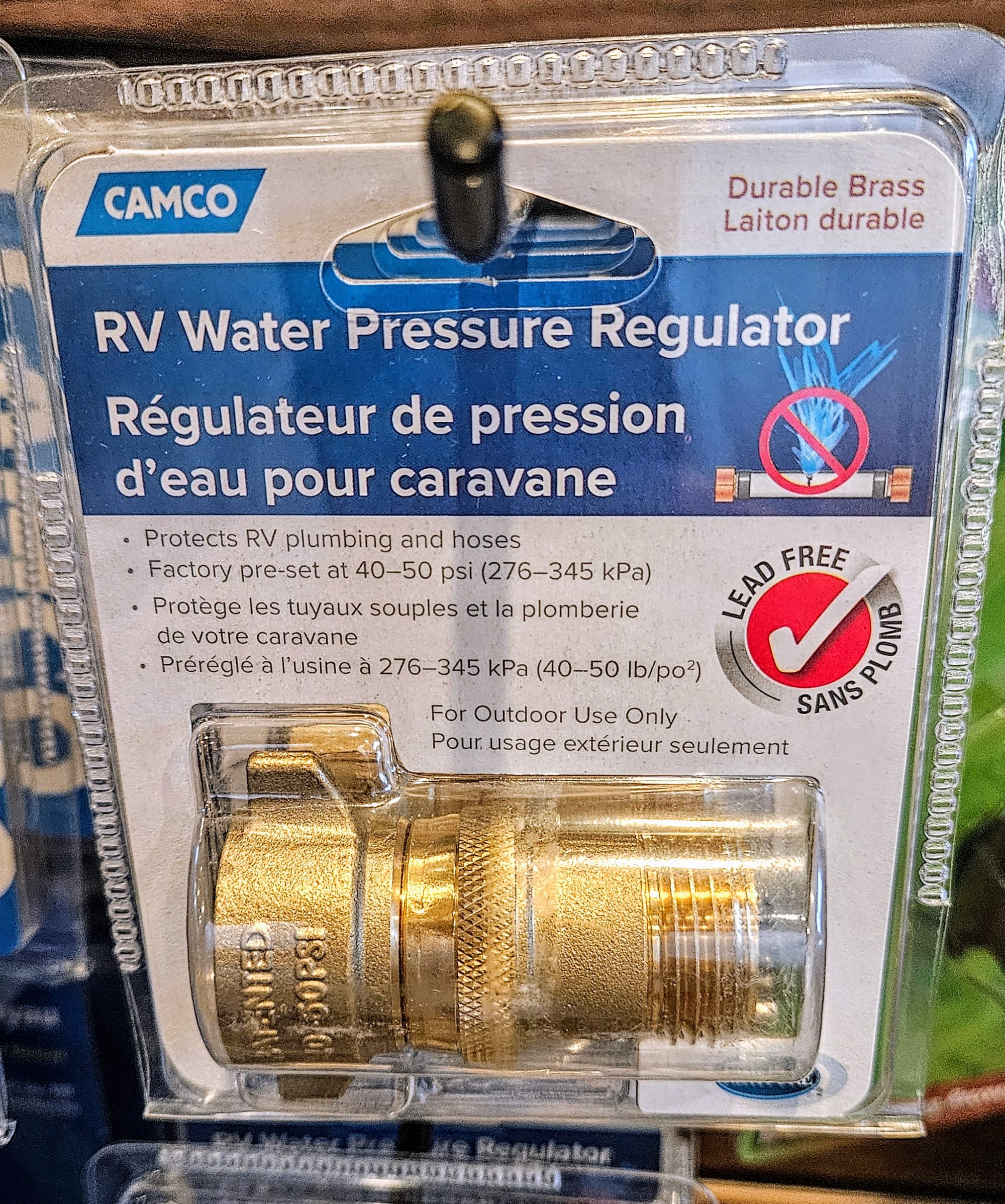
We have a confession to make. We don't use a water pressure regulator. Don't call the cops on us just yet! Let us explain! Everyone in the RV community says a water pressure regulator is one of the first three items you should buy for your RV, and we bought one right away. Only then, it broke. So we bought another one, and that one also broke. We then bought a third one, and that one broke. So then we just never bought one again. A water pressure regulator is certainly useful because it keeps high-pressure water from running through sensitive RV plumbing. If water is too high-pressure, it could burst pipes or ruin the water pump. We now test the water spigot before we hook up, and if it's really high, we make sure to turn the knob only part way. Different RVs have different maximum pressure allowances, and many of these numbers are conservative. We are well over 100 campsites in, and we have never had an issue, despite being at a handful of sites with really high water pressure. We also use an inline Clear20 water filter, which helps to lower the water pressure before it gets anywhere near our RV. Again, don't use this as advice to not use a water pressure regulator because we do understand their importance. Just be mindful about your water pressure in general and know that there are ways to RV safely without a regulator, if you need to do so.
"When backing up your trailer, put your hands on the bottom of the steering wheel."
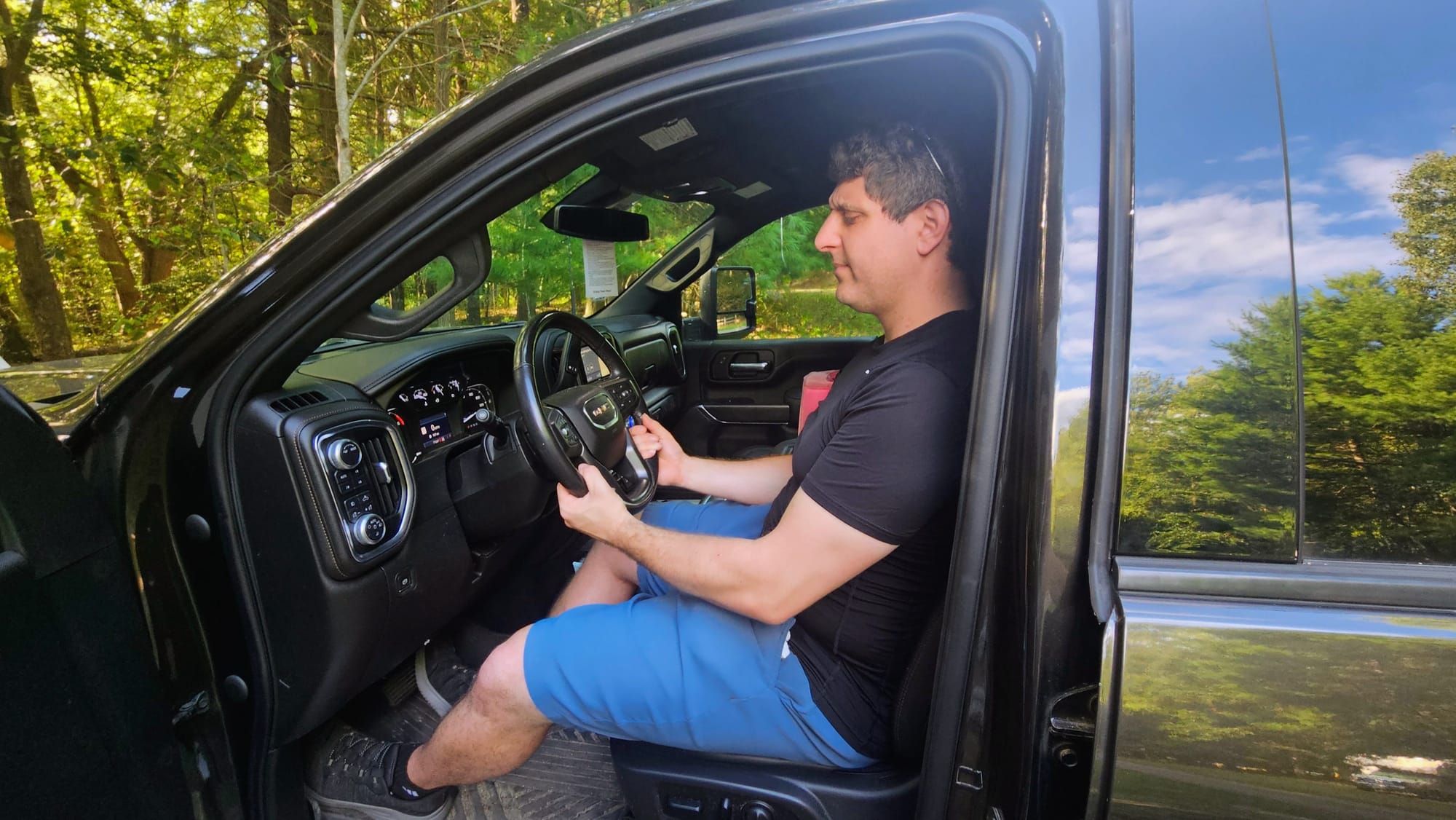
This advice comes up constantly when searching for tips on backing into campsites. We oughta know; we watched dozens of videos on this when we first started towing, because we were really bad at maneuvering. Eventually we realized that one reason we were so bad was because our brains just work differently than a lot of other RVers'. Putting your hands at the bottom of the wheel makes it so when your spotter says "come back left," the driver moves his or her hands to the left, and the trailer moves the correct way. We learned that "left" and "right" terms have no place in our navigational process. Whether our hands are on the bottom or top of the wheel or are waving out the window, when we're coming back left, that wheel is turning to the right. We tried using the terms "clockwise" and "counterclockwise" for a while, but this was too convoluted. The easiest solution for us was "passenger" and "driver." When the spotter says "passenger," the steering wheel needs to be turned left. When the spotter says "driver," the wheel needs to be turned right. Over time, this became second nature, and no hacks were needed. As soon as our muscles learned what to do, maneuvering the rig became a breeze. We have since given fellow RVers tips on backing up their rigs, and we don't bother with any of the hacks we've learned. We tell it like it is. Learn that you'll need to turn the wheel the opposite way you want the back of the trailer to go. Use whatever terms make sense for you. Learn the space around your rig so you know how much length you need before it responds. Lots of RVers advise to "make small adjustments," but this means something different depending on the specific rig, site, and road leading to the site! The best advice is literally to know your rig and to practice. Oh, and communicate with your partner, of course. Sometimes this is the hardest advice to take.
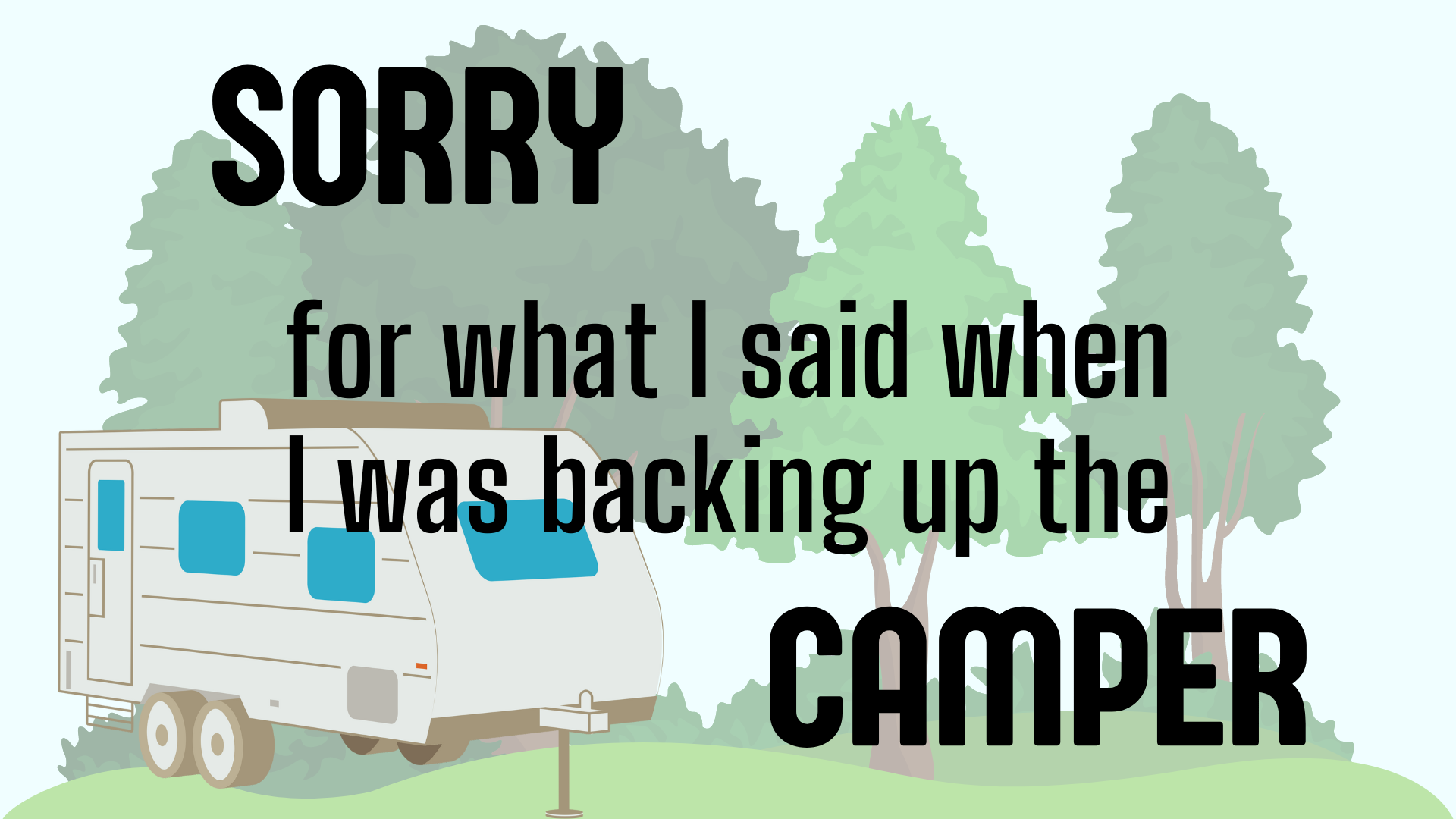
"Don't tow with a gas truck."
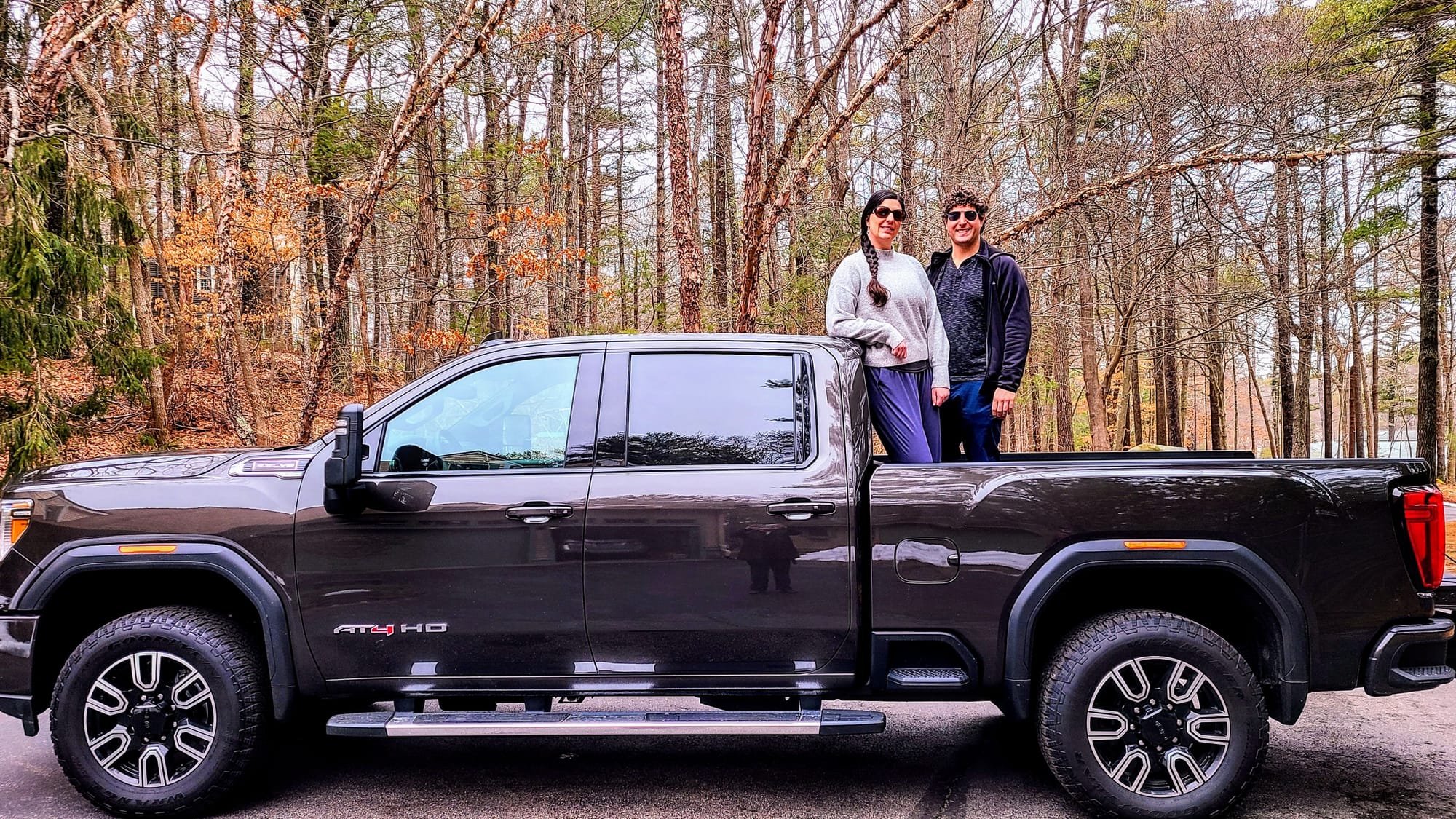
We bought our truck during the pandemic, when trucks were hard to come by. Basically, we took what we could get. However, we opted for a gas-powered engine because we like the fact that they drive less ruggedly. We were not truck drivers until we had to be. We preferred cars and SUVs, and Anthony even had a hybrid back in the day. We knew that a gas truck would come with some disadvantages. Our gas mileage would not be good towing a 12,000lb toyhauler. We would need to fit into car lanes at gas stations, which is not easy given that we are 56ft of combined length when hitched. We also weren't sure how our truck would fare towing over mountain passes. 7.5mpg is pretty sad, but gas is cheaper than diesel, so we don't feel like we're wasting much money when we need to fill up. The poor gas mileage + the annoyance of getting gas while hitched have also motivated us to keep our drive days shorter, so we don't need to fill up part-way through our journey. Of course we still do many times, and we've gotten a good sense of what gas stations we can maneuver into. As far as the mountain passes go? Once we made it over Teton Pass, we knew that our truck could handle mostly anything we threw at him. It was a slow crawl up the mountains, for sure, but it's not about how fast you go; it's about getting there at all.
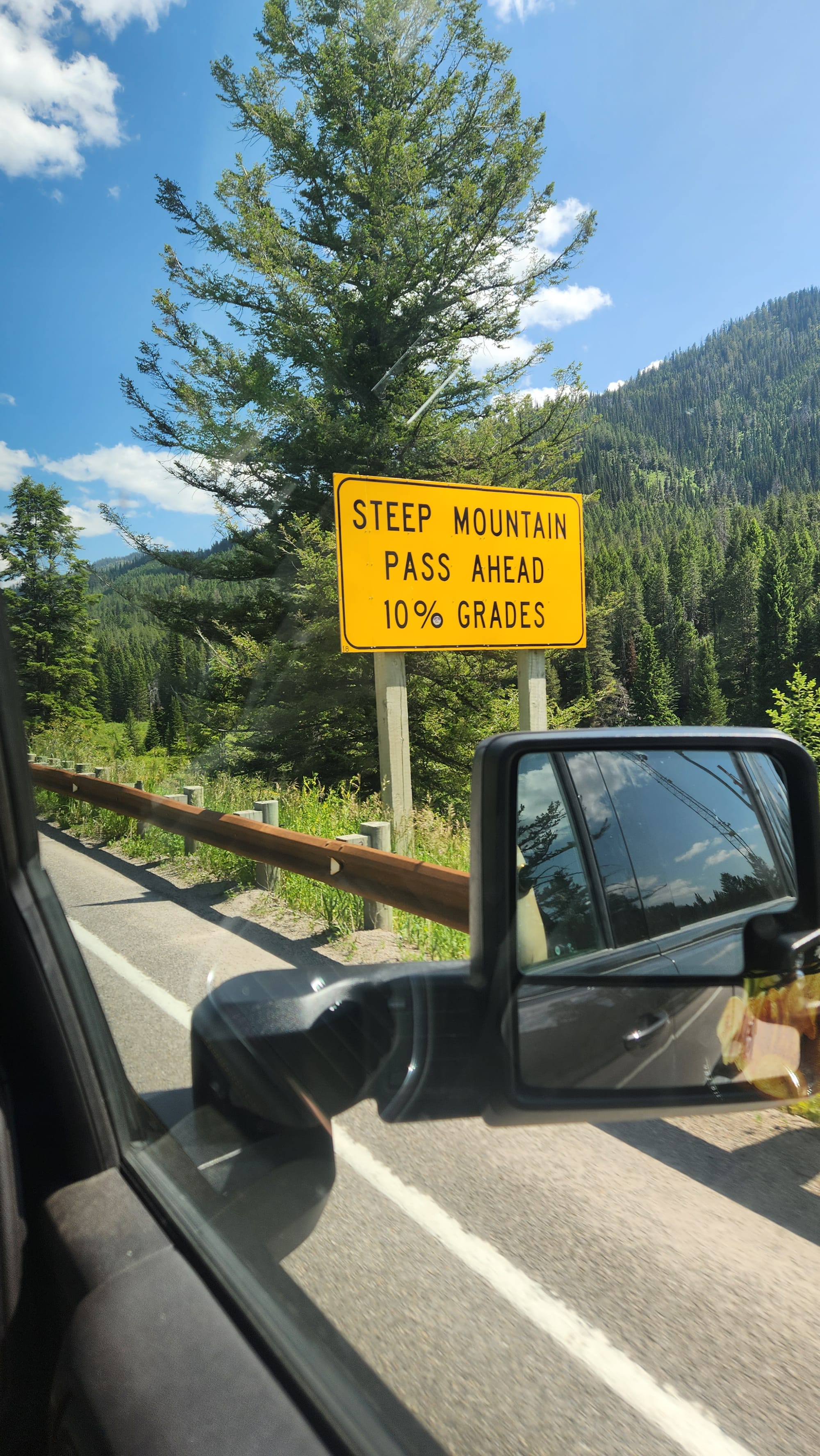

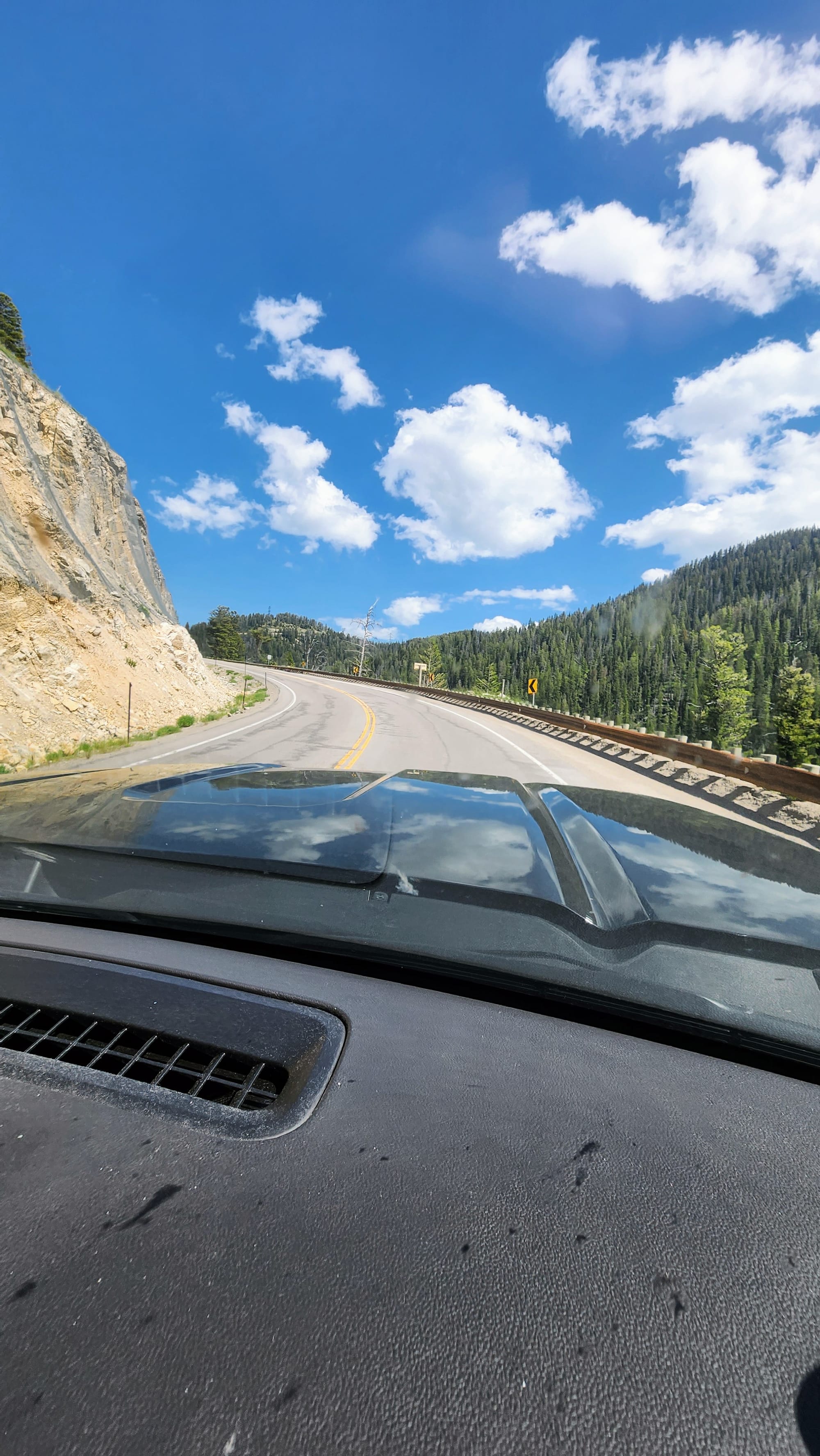
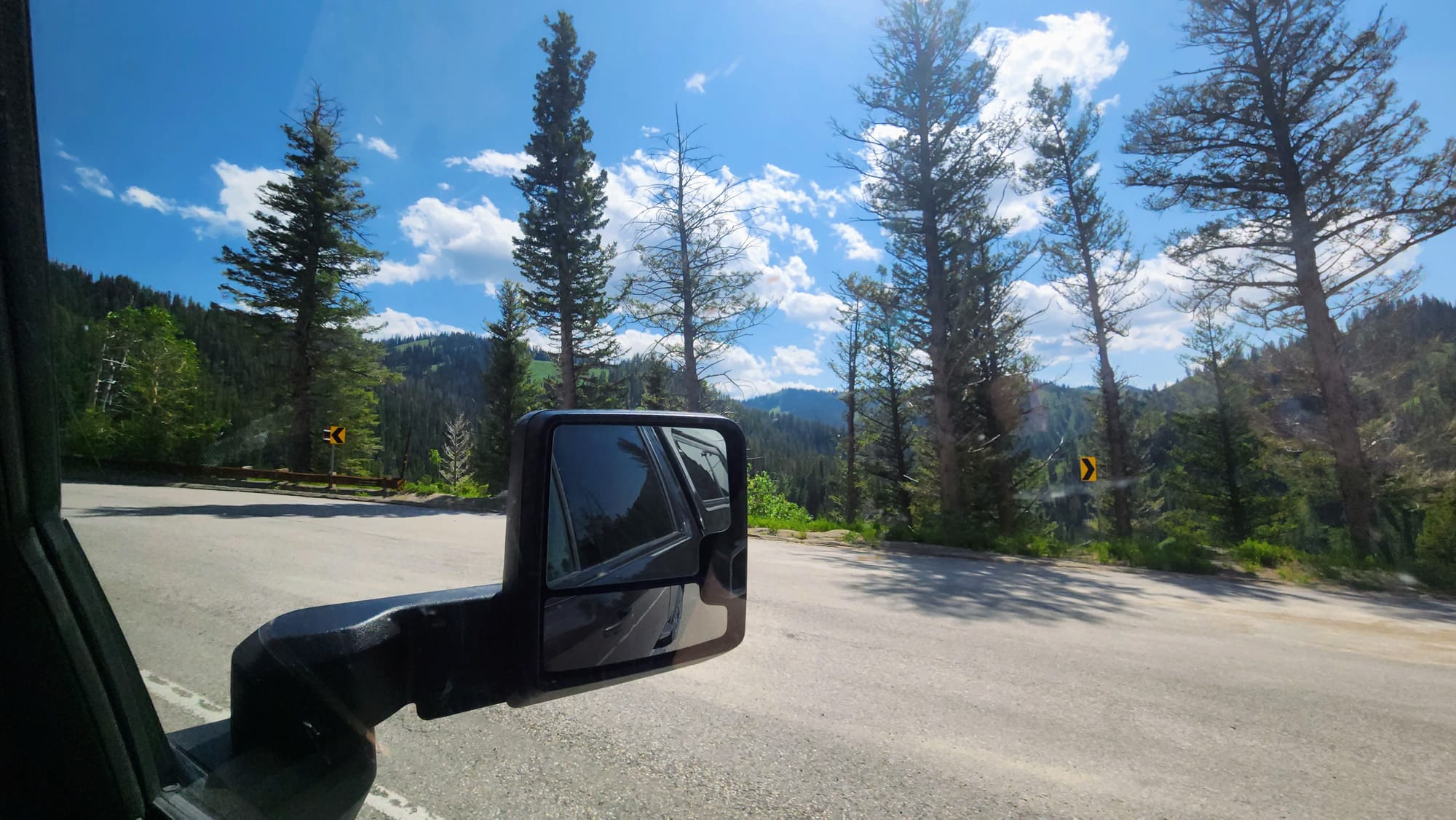
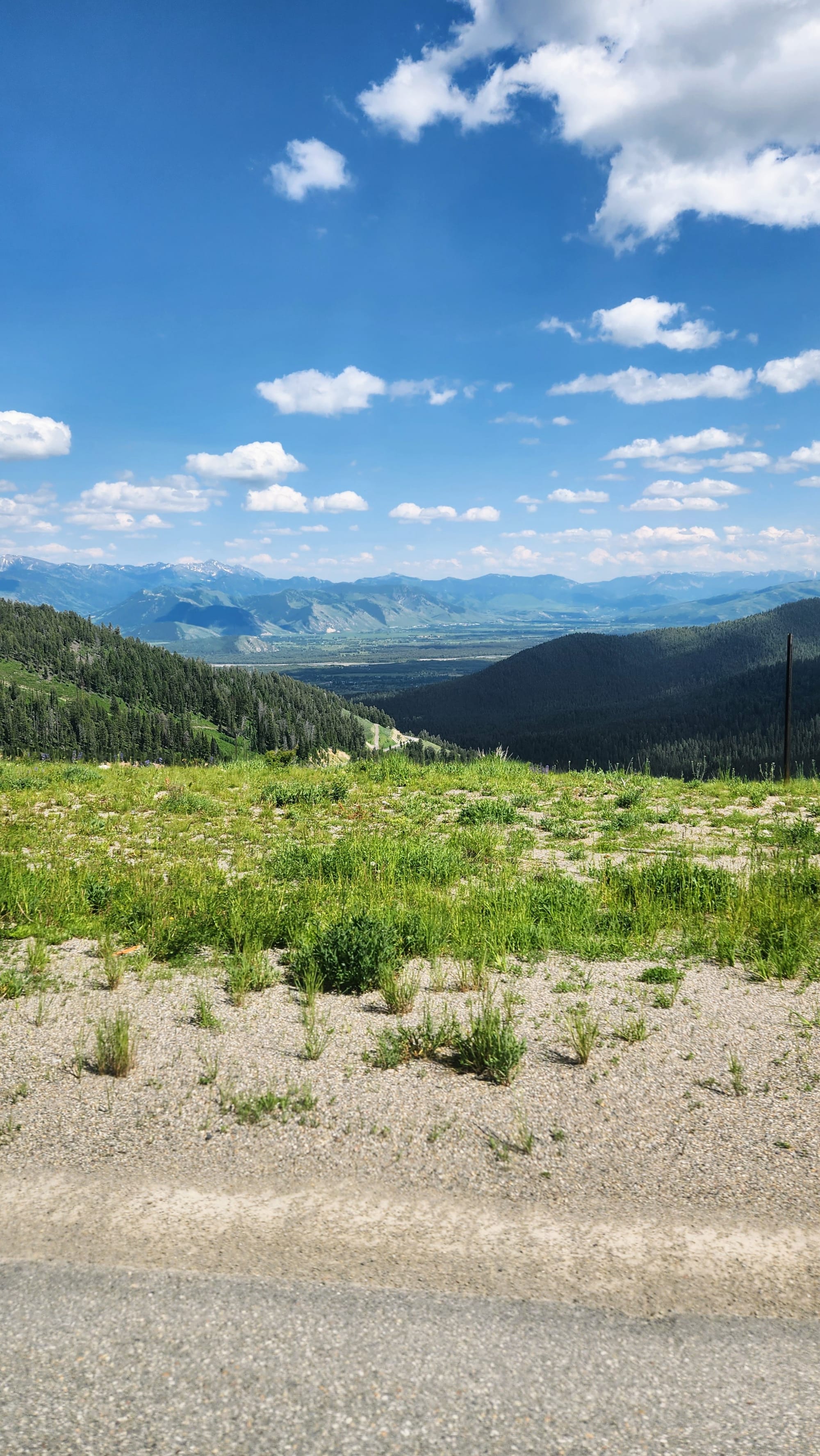

"Plan your pit stops ahead of time."
We have noticed over our many, many drive days that sometimes we need to stop early and often, while other times we could drive until the cows come home. Simply put, planning our pit stops isn't ideal for us. We are only two adults, so it's been easy for us to form a system of communication when we're on the road. If we feel like we will need a bathroom break, we try to give advanced notice to each other, so we have at least a handful of miles to decide our best option. We take snacks on the road, so unless we have an extra long or late drive or we need to kill time before check-in, we don't plan on stopping for full meals. The pets are never our limiting factors, either. Lily just happens to wear diapers because her cystitis has made her incontinent, and Tanner has a bladder of steel. We find drive days more pleasant when we can fly by the seat of our pants. This might mean ending up at a less-than-perfect rest area or truck stop, but we're pretty low-maintenance when it comes to our stops. They're not called "pit stops" because they're gorgeously idyllic (though some of our stops have been!). Our only exception is if we are driving a route that has a specific place we want to stop, like a grocery store or roadside attraction, but we don't do this too often because our length limits where we can stop anyway. Sometimes we will also list out a few options for stops if we plan on having an extended break. Otherwise, we keep a lookout several miles out, and when we feel like we could use a break, we choose a place that seems convenient.
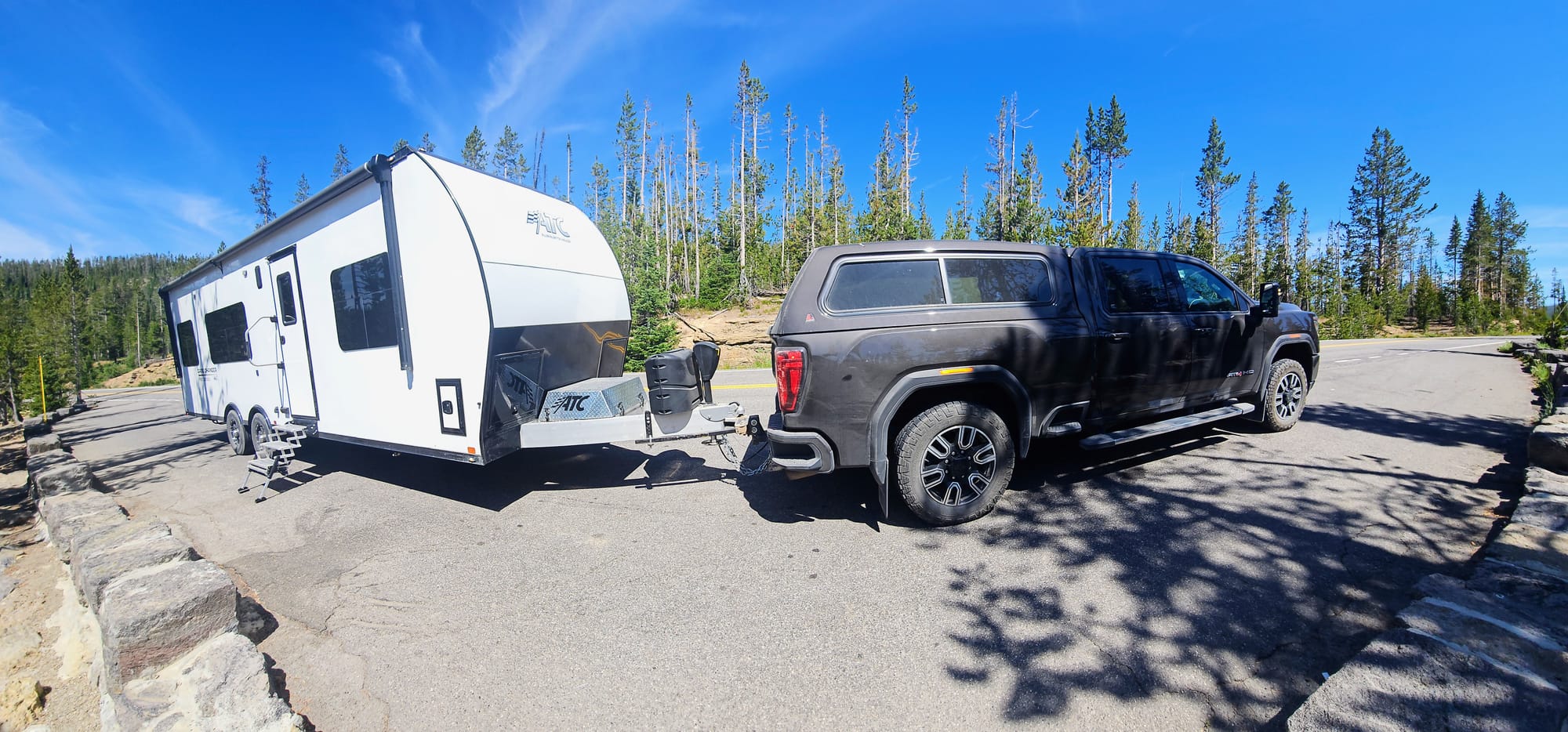
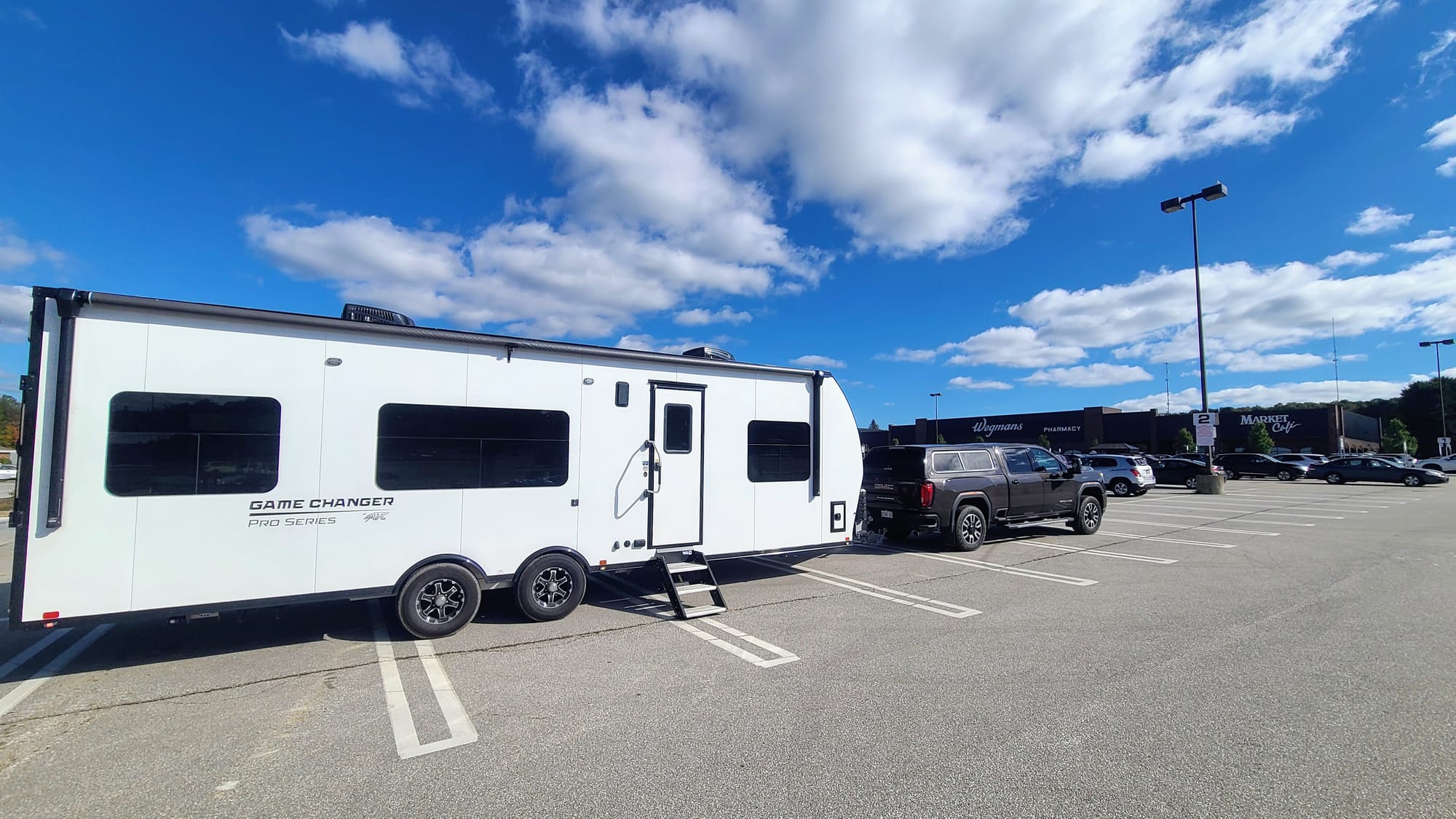
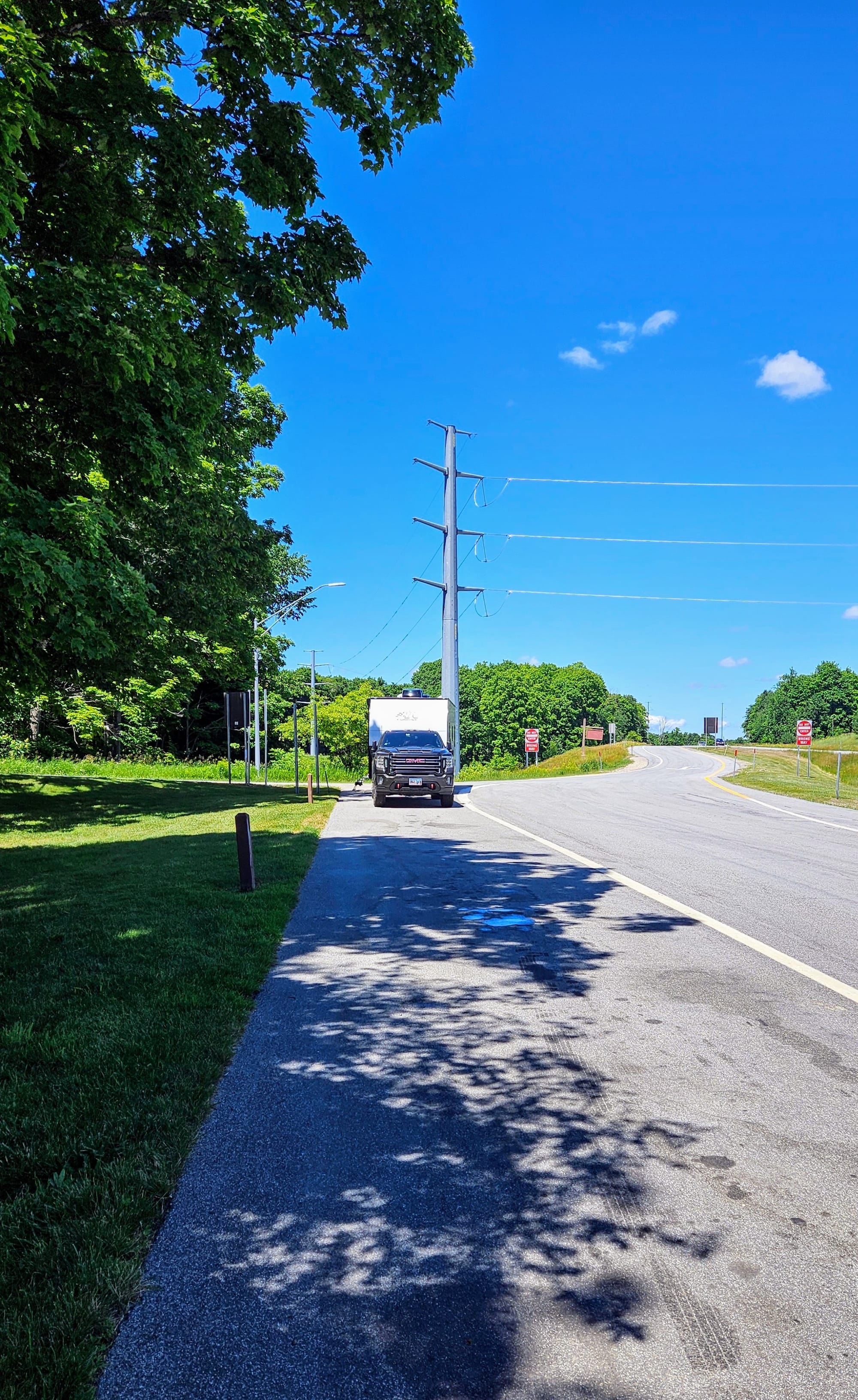
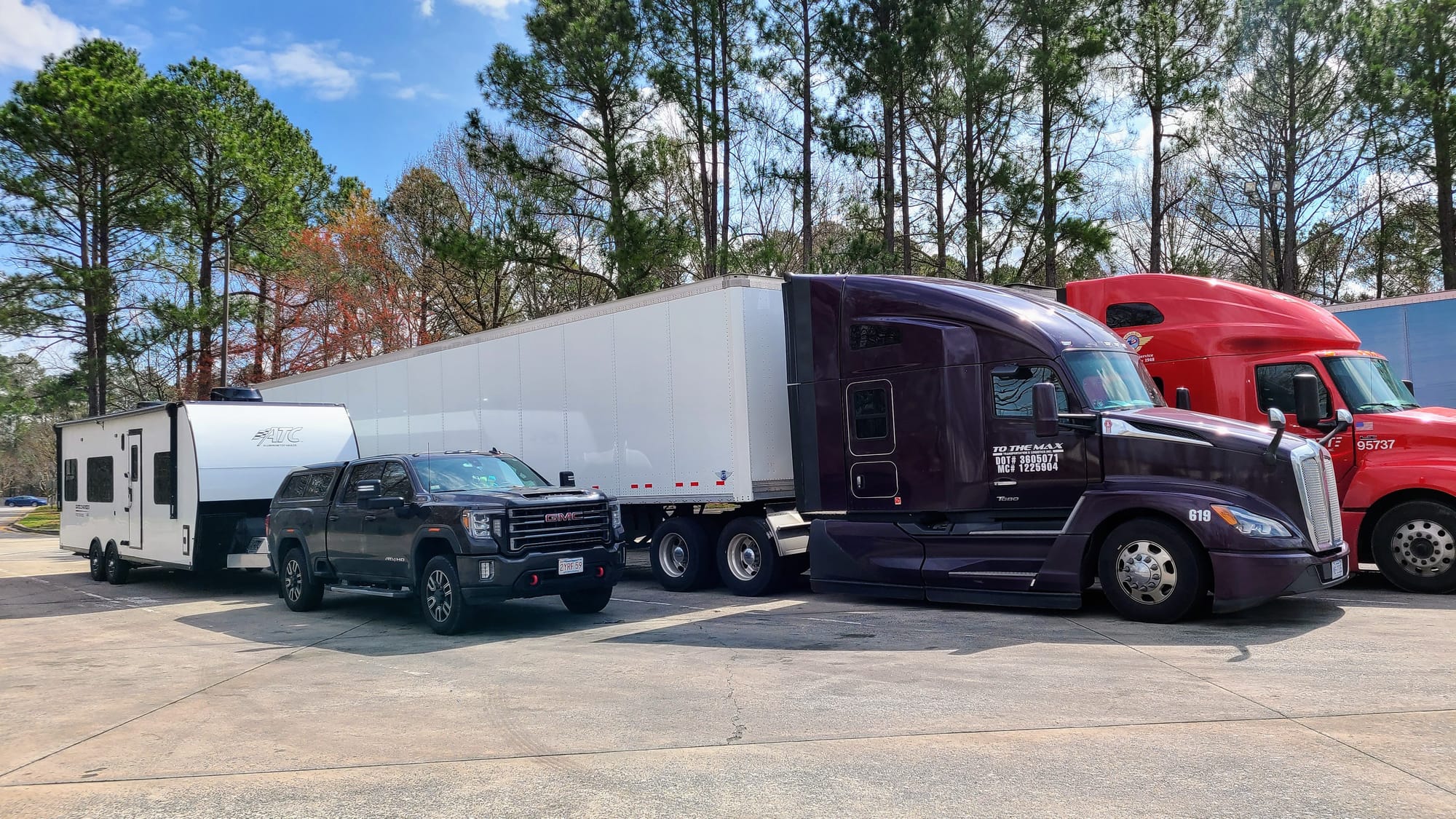
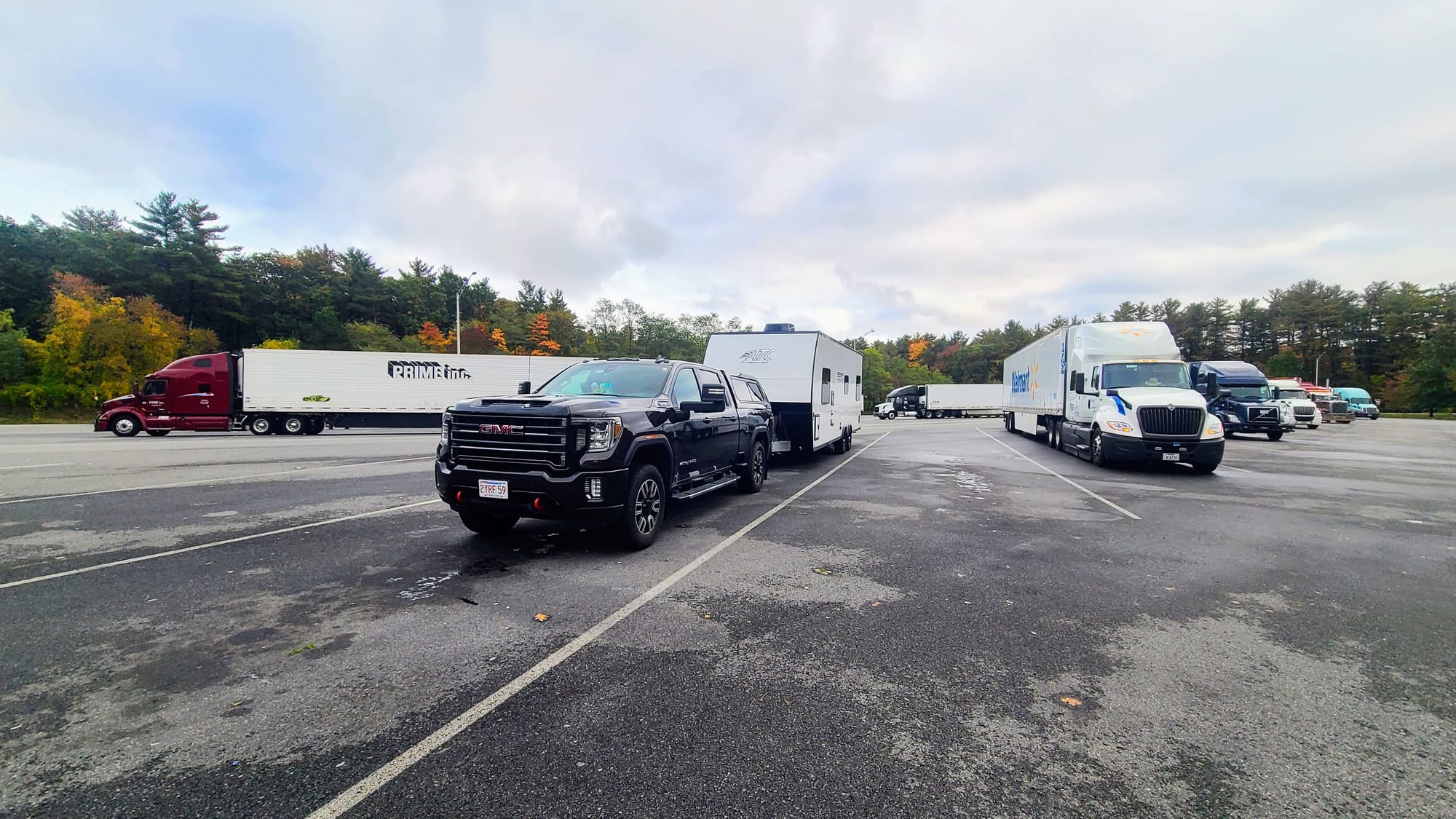
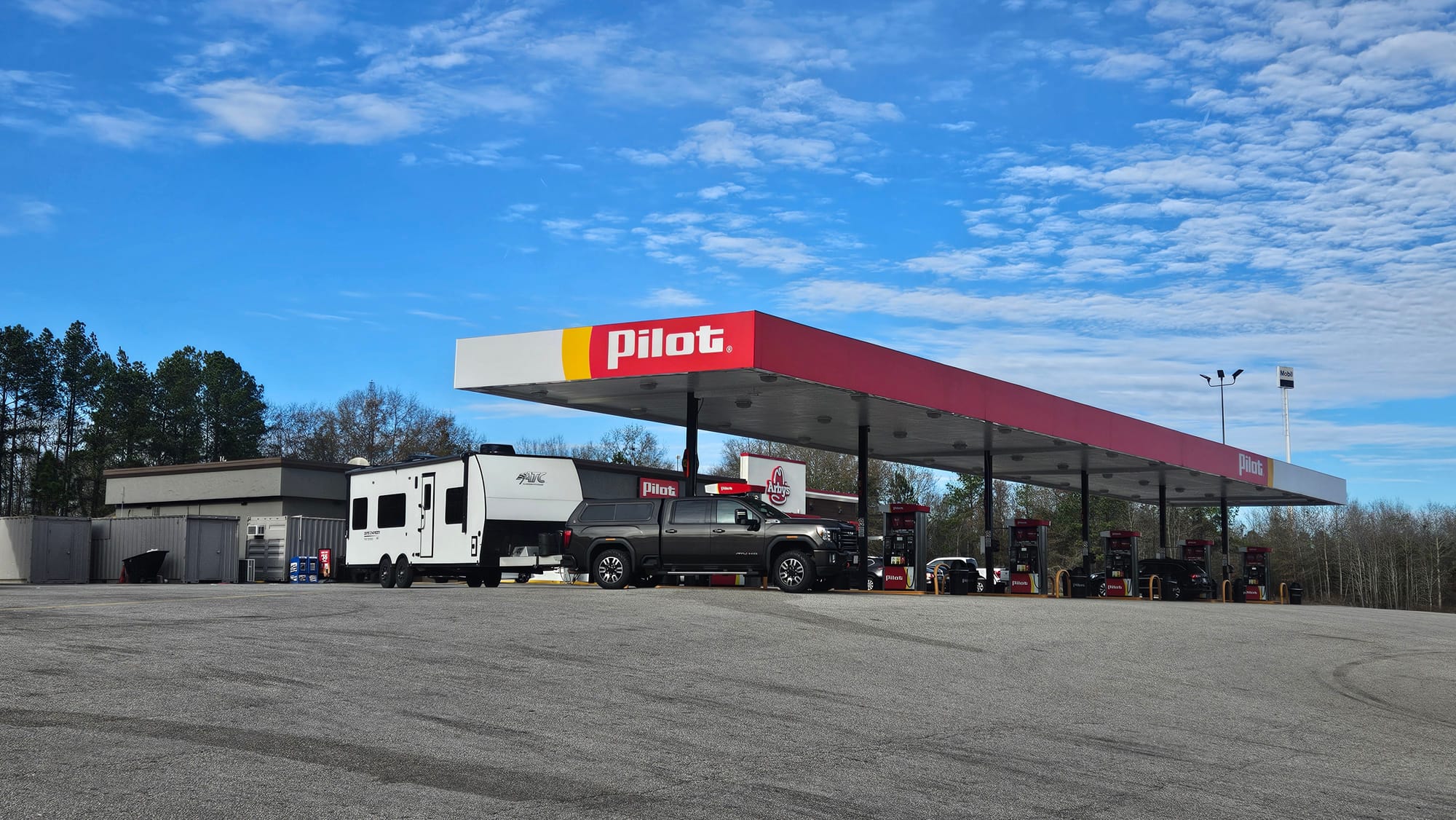
"Follow the 3-3-3 Rule."
The 3-3-3 Rule developed as a way to keep RVers from getting fatigued on the road. Drive no more than 300 miles. Arrive by 3PM. Stay at least 3 nights. Some people have adapted this rule to 4-4-4 or some other combination. We tend to stick under 300 miles on our travel days, but typically we like to drive a lot less than this. Our ideal range is around 200-250mi because we feel like we're getting a good change of scenery but aren't spending the majority of our day on the road. As far as the other two parts of the rule, we tend to blatantly not follow them. First of all, a 3PM arrival time only makes sense if the campground allows check-ins at 3PM or earlier. We've stayed places that don't have check-ins until 4PM or later. Secondly, we travel in all seasons and all regions of the country, which means that on some drive days, the sun sets at 4PM. On other drive days, the sun sets at 9:30PM. We see no need in arriving by 3PM in the summertime, if we could instead take our sweet time and arrive a couple hours later, with plenty of sunlight to spare. One piece of advice we do try to take is arriving before dark, but we've had a few occasions where this wasn't plausible, and it's never as much of an issue as we fear. As far staying at least 3 nights in one place, we would much rather assess how much we want to do in a certain area. If a stop requires only a night or two, we aren't going to tack on a third night just because we're "supposed to." Also, because we both work full-time, sometimes we schedule a couple of drive days in a row so we can get to a destination and stay for a longer time, catch up on work, and see the sights. Bottom line is, there is no required way to travel, and each family will have different preferences.
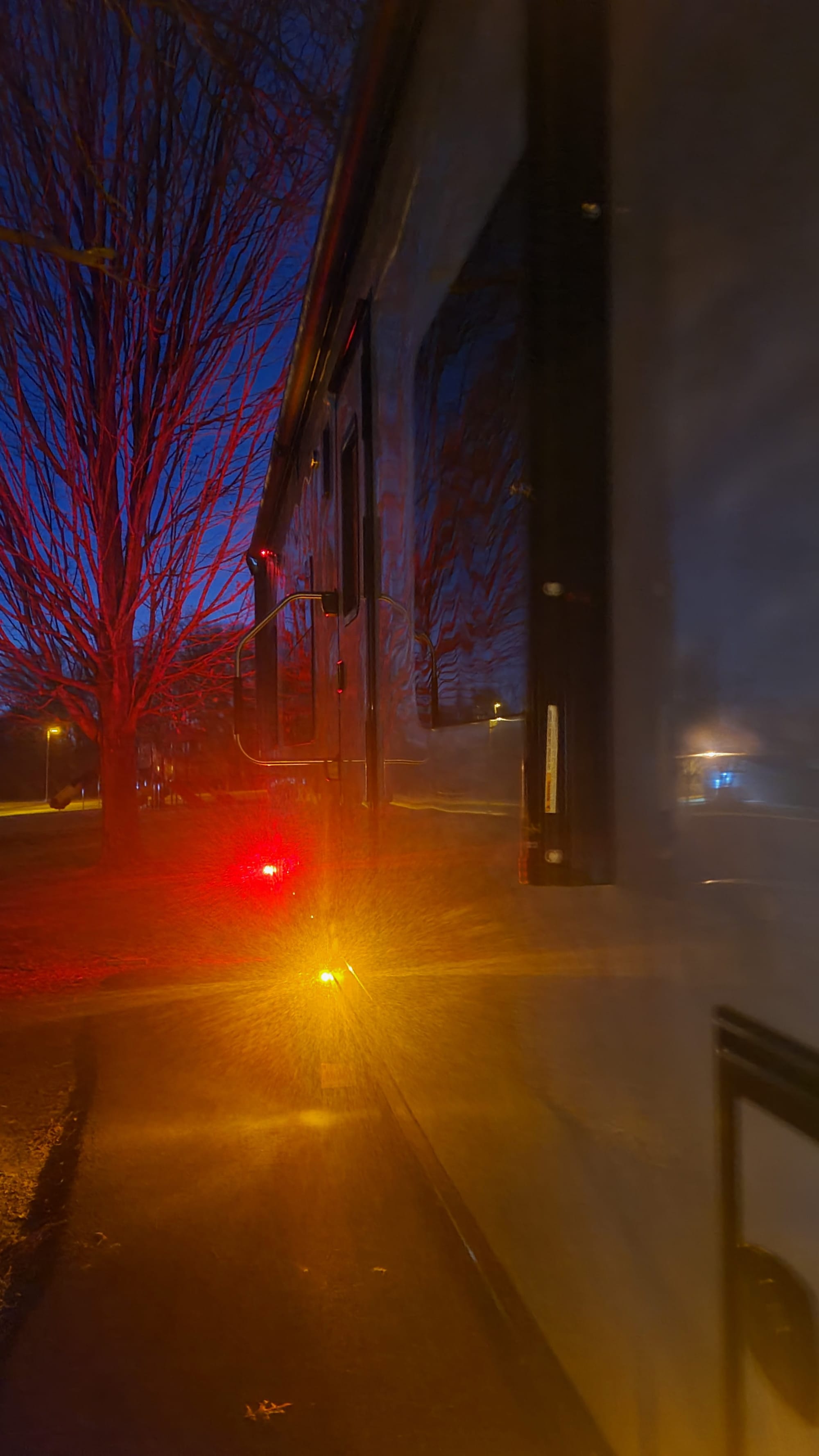
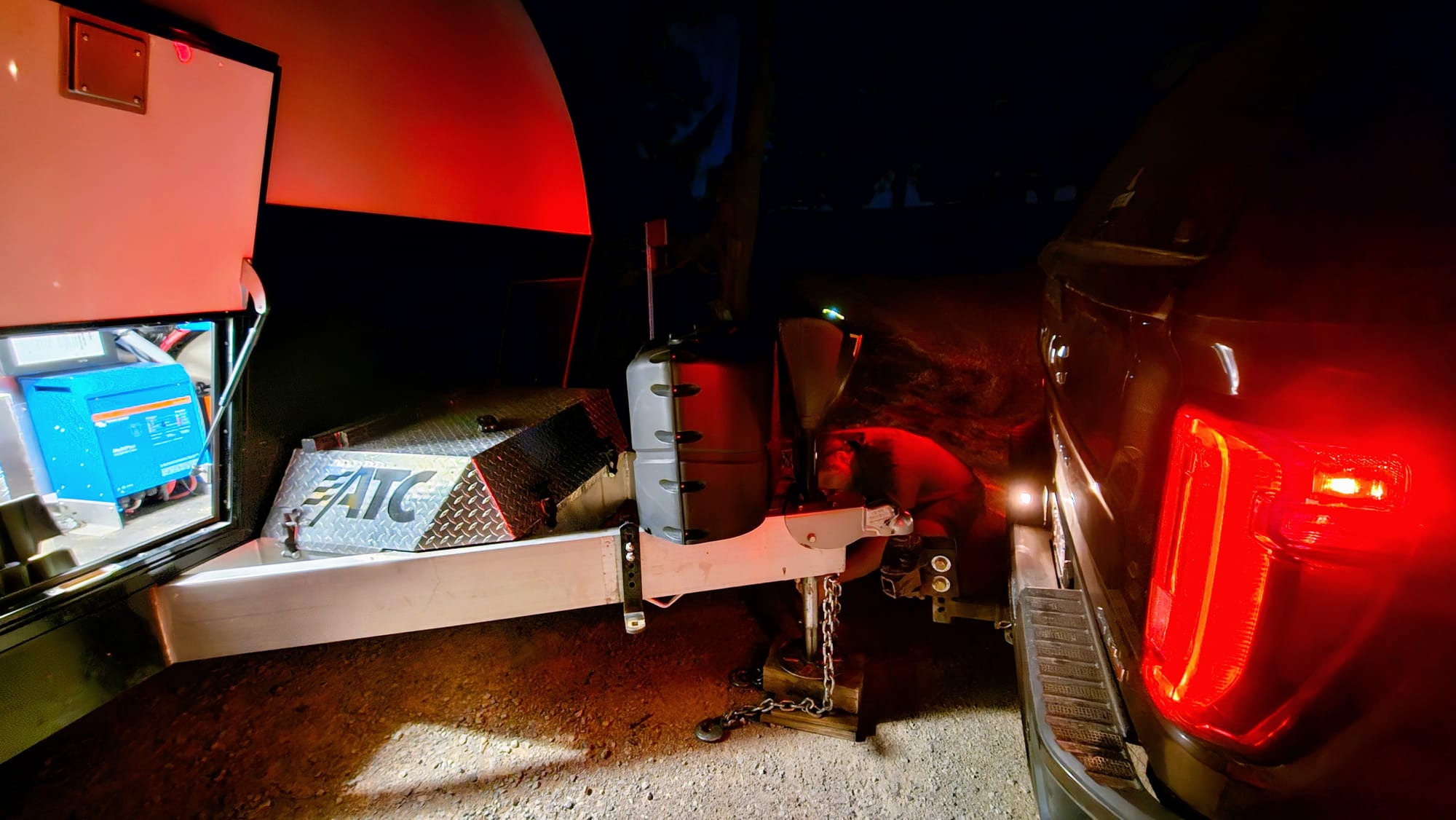
"Don't bother with National Parks. They're all way too crowded."
We have heard it all. National Parks aren't worth it. They're too crowded. They now force you to make reservations for timed entry. Our National Parks are a treasure, and avoiding them purposely is truly a disservice to US travel, especially if you are the type of person who appreciates nature's beauty, which as an RVer, chances are you do. People hear a few stories of crowded National Parks and believe this is always the case everywhere. In reality, visitation has actually decreased in National Parks since before the pandemic. Sure, peak seasons at the most popular parks are crowded, but there are so many ways to avoid the crowds even then. Go at off-times such as early morning or evening. Visit areas that are off the beaten path. In our experience, even hiking a 1/2-mile from the parking lot opens up space for solitude. As far as timed entries go, only a handful of National Parks require this, and it helps to keep areas from overcrowding. You might need to plan your visit a little more diligently, but if you're already planning an RV trip, then it's not much more planning! For those who would rather be spontaneous, most parks with timed entries only require reservations for certain times of the day or certain spots in the park. When we visited Glacier National Park last year, we never got timed entry for Going to the Sun Road. Instead, we visited the park after 3PM, when the timed entries were no longer required.
Our experience is a little strange, we think, because of all the National Parks we've visited, we've never had to deal with big crowds. Sometimes this is because we went at an off-time, but other times there is no obvious explanation. We went to the Smokies on Memorial Day Weekend, in the middle of their Firefly Festival. No crowds. We went to Glacier through Memorial Day Weekend the following year. No crowds. We went to Yellowstone during 4th of July week. No crowds. We went to Rocky Mountain National Park in the height of foliage season. A small line at the entrance gate, but entry was extremely well-managed and we moved through very quickly. This was before timed entry reservations started for the day and lots of people were trying to get in while they could. Then we opted to take the park shuttle to our trailhead as recommended by the staff, but it turns out we wouldn't have needed to because there was still parking available right at the trailhead!
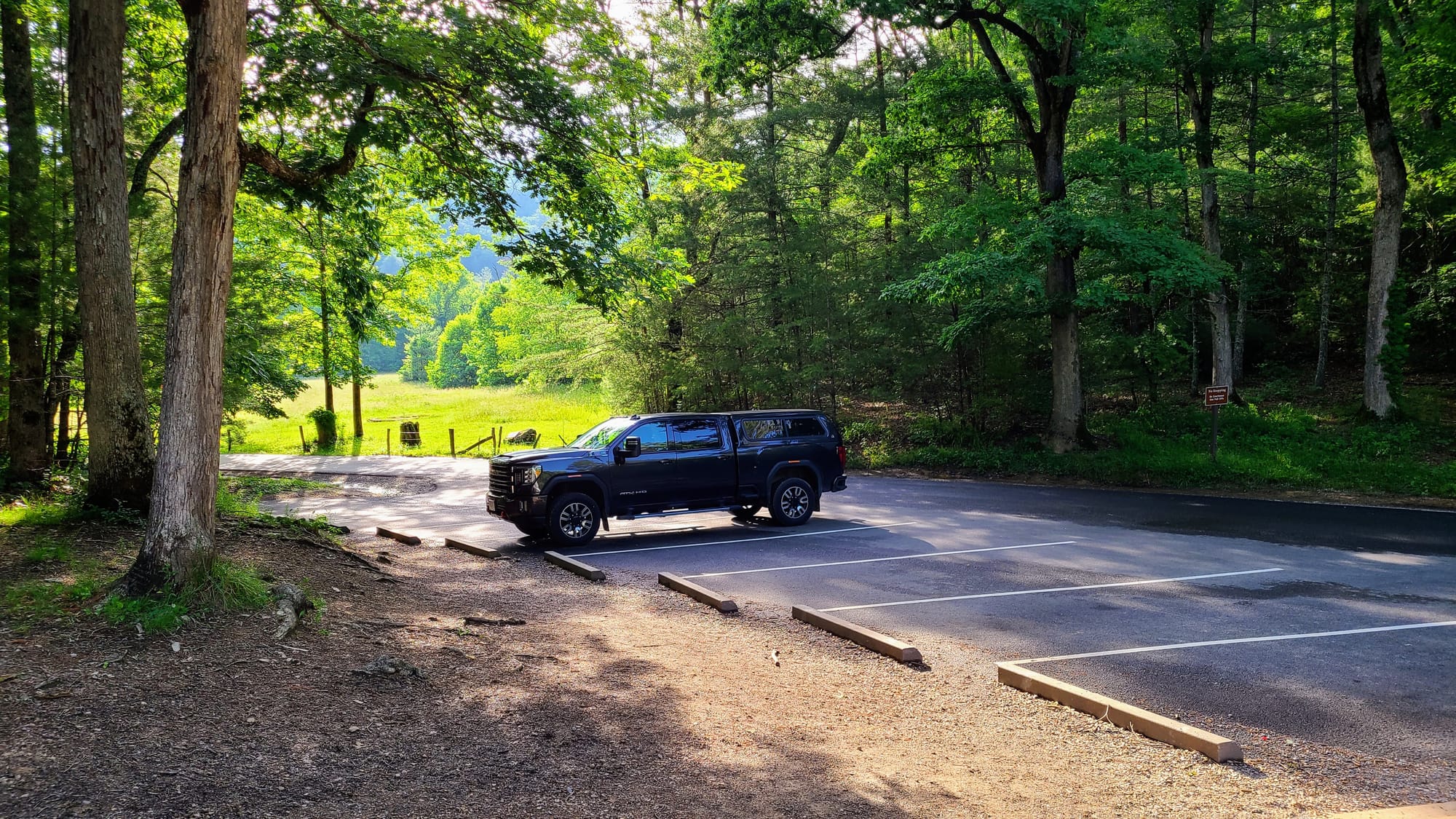
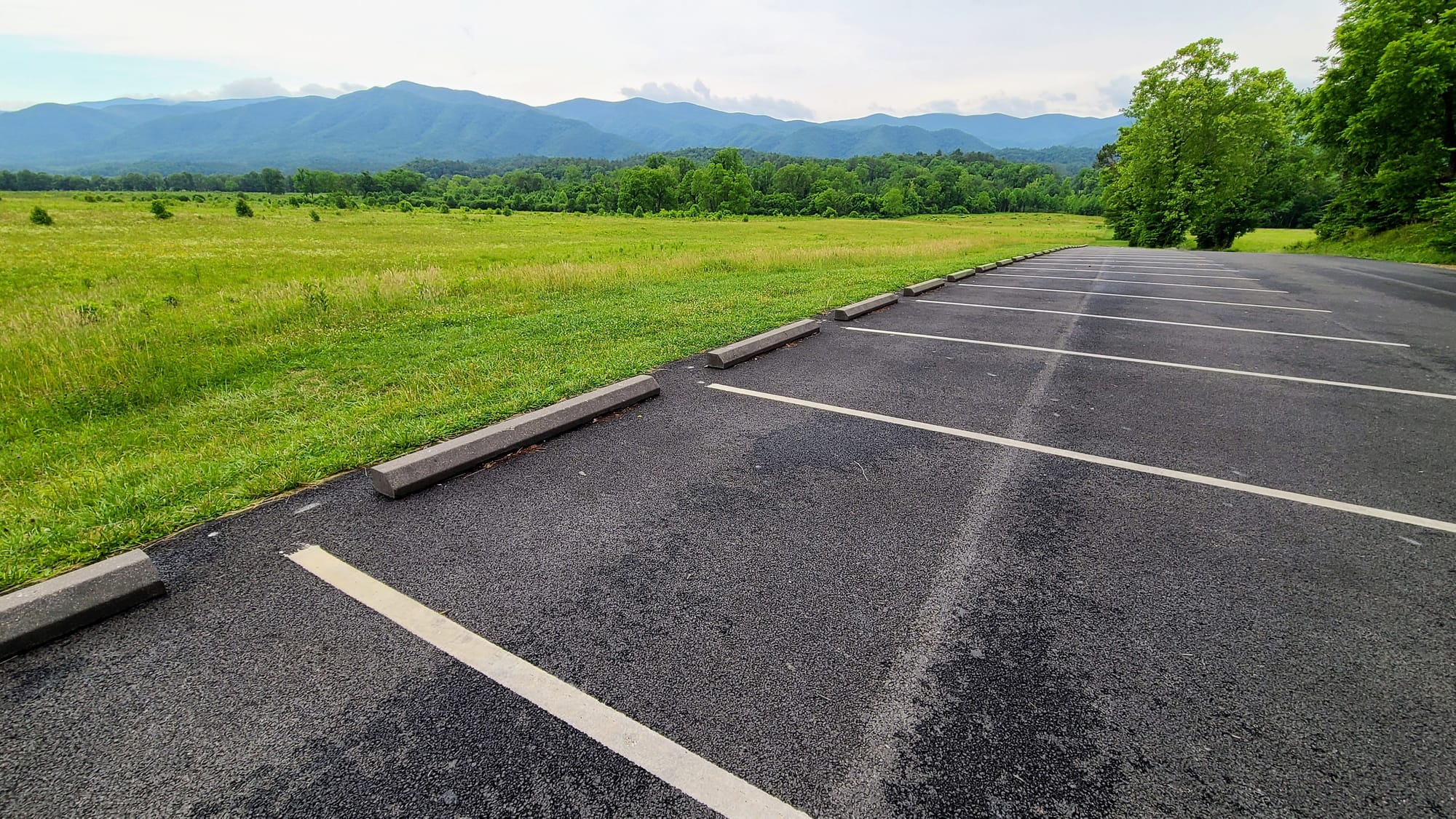
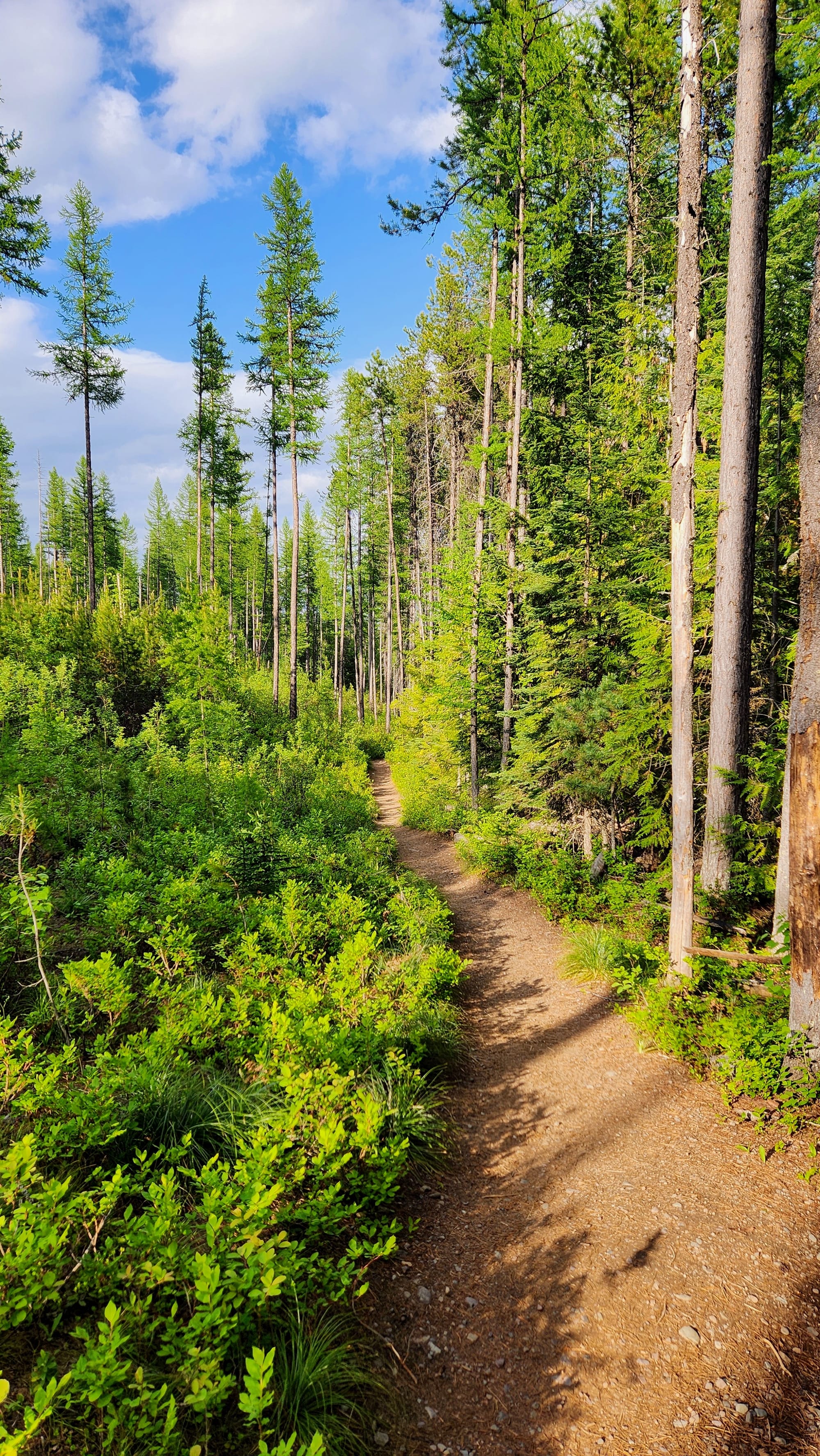
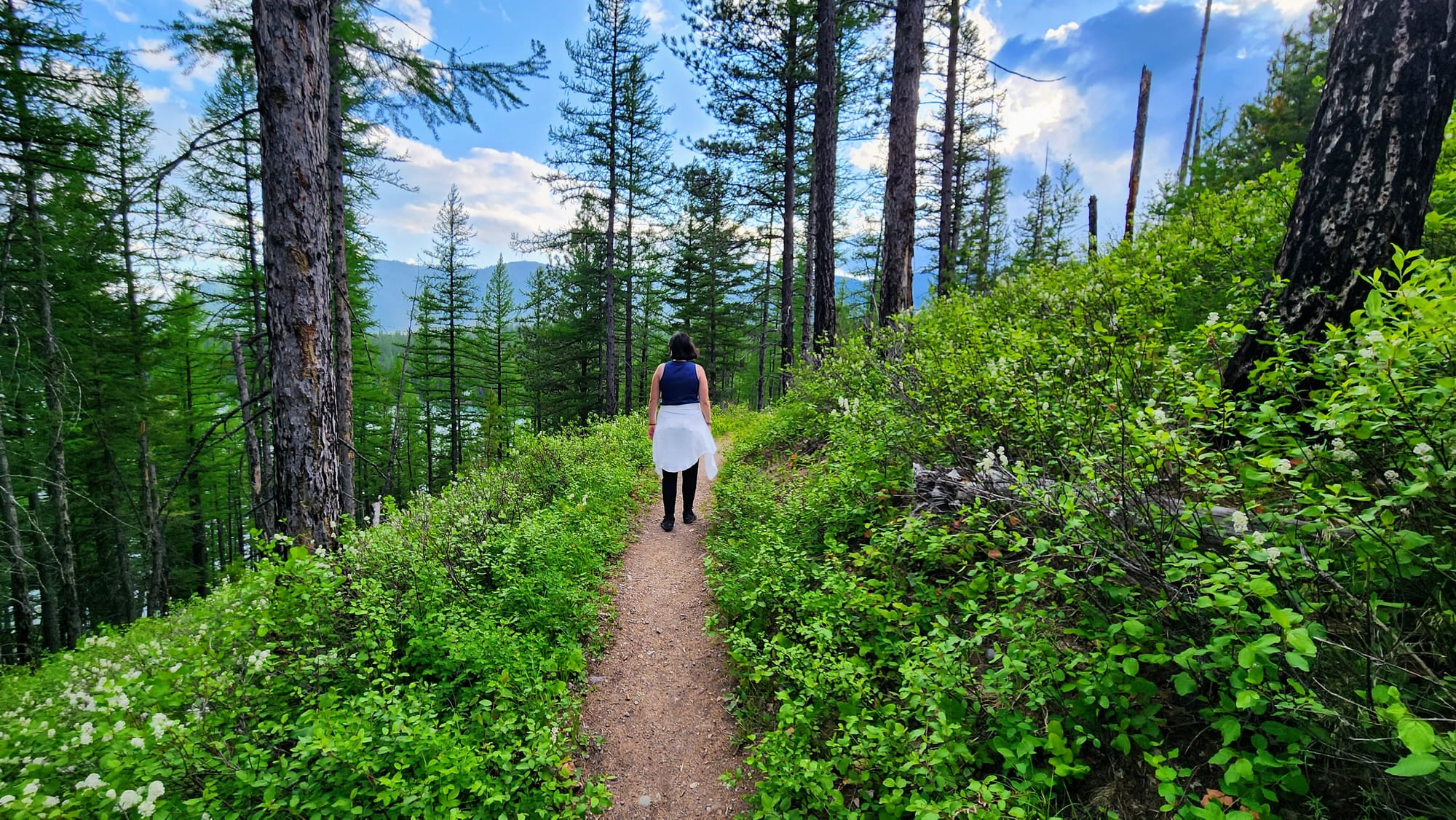
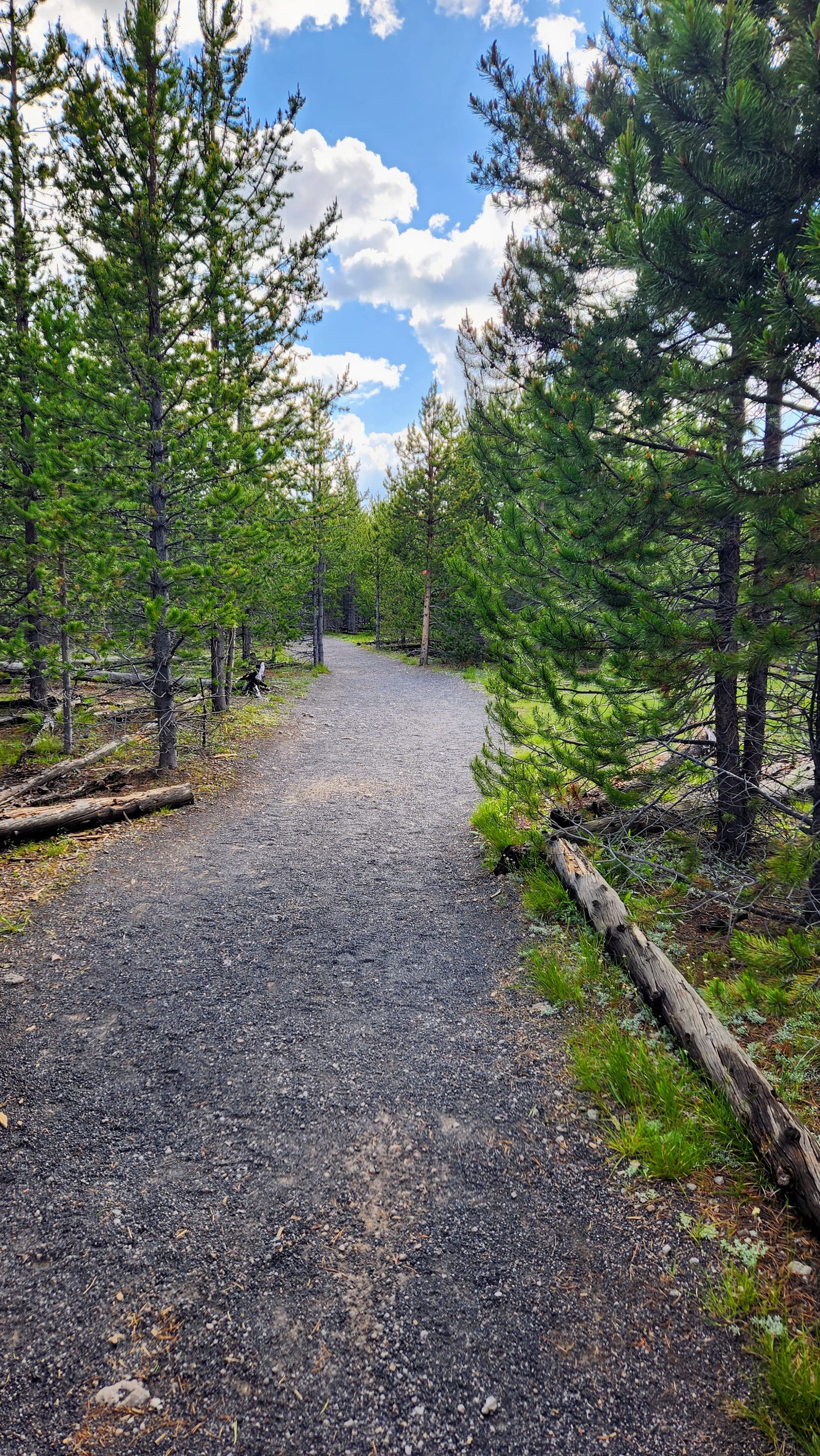
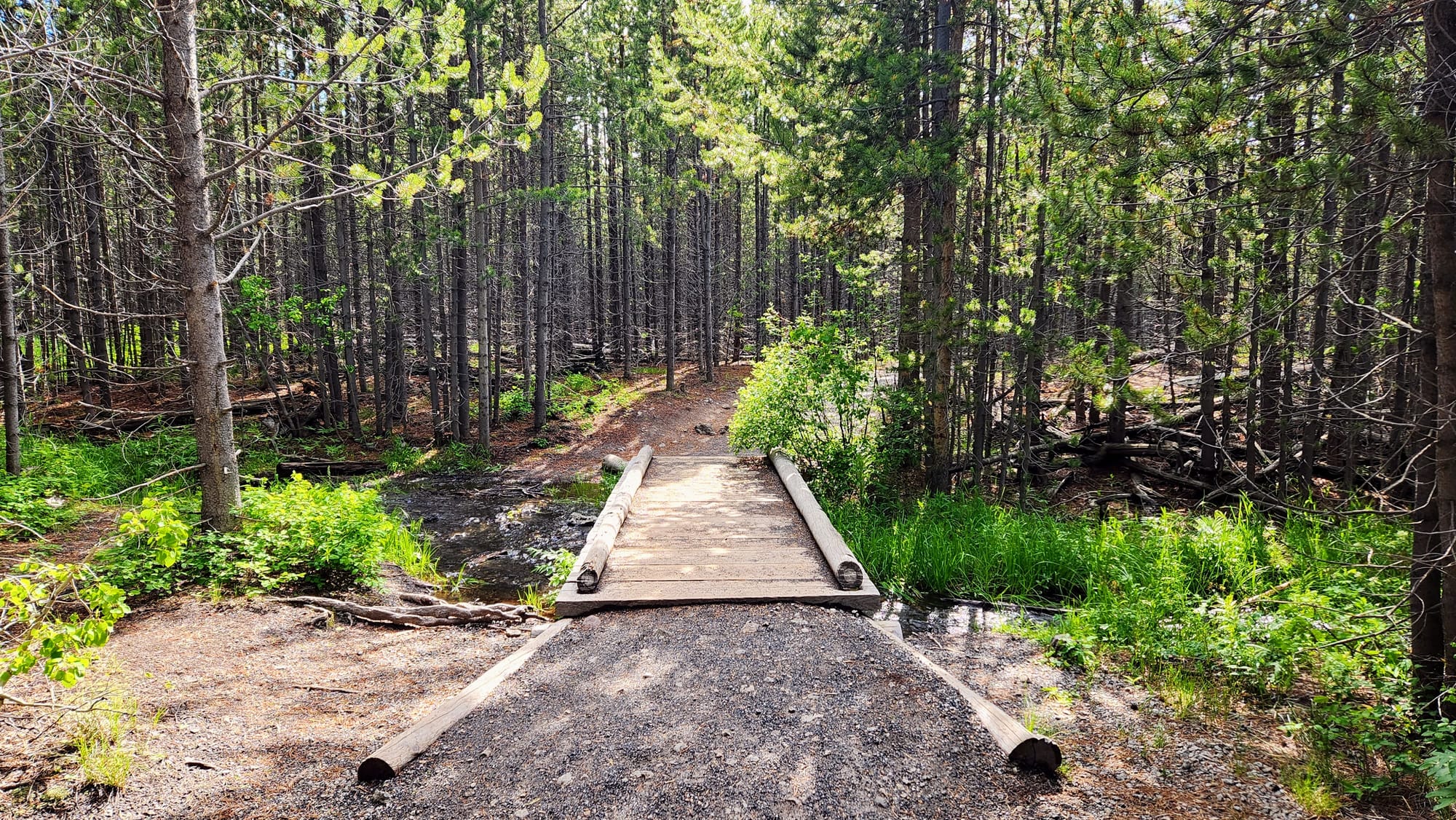
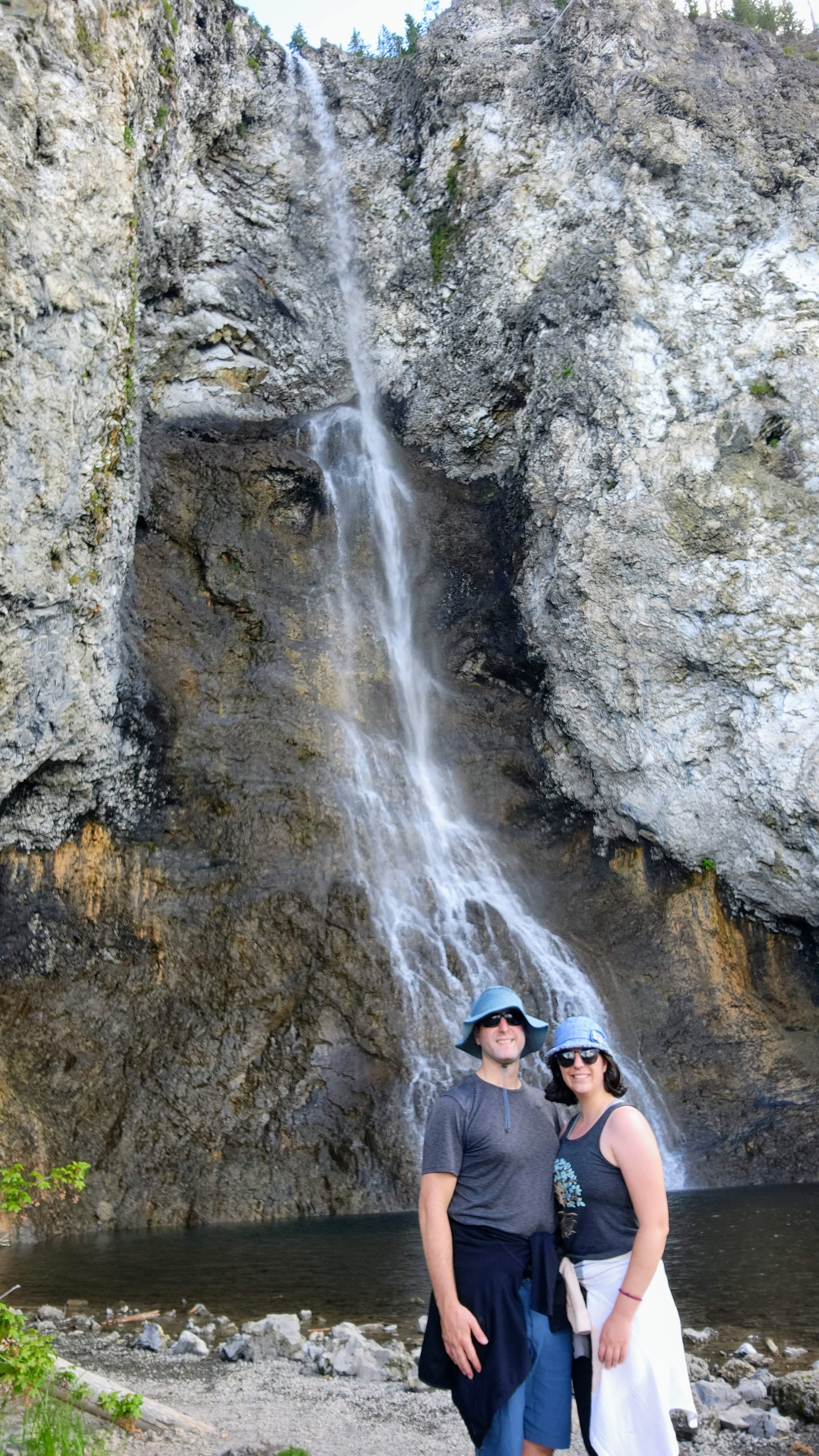
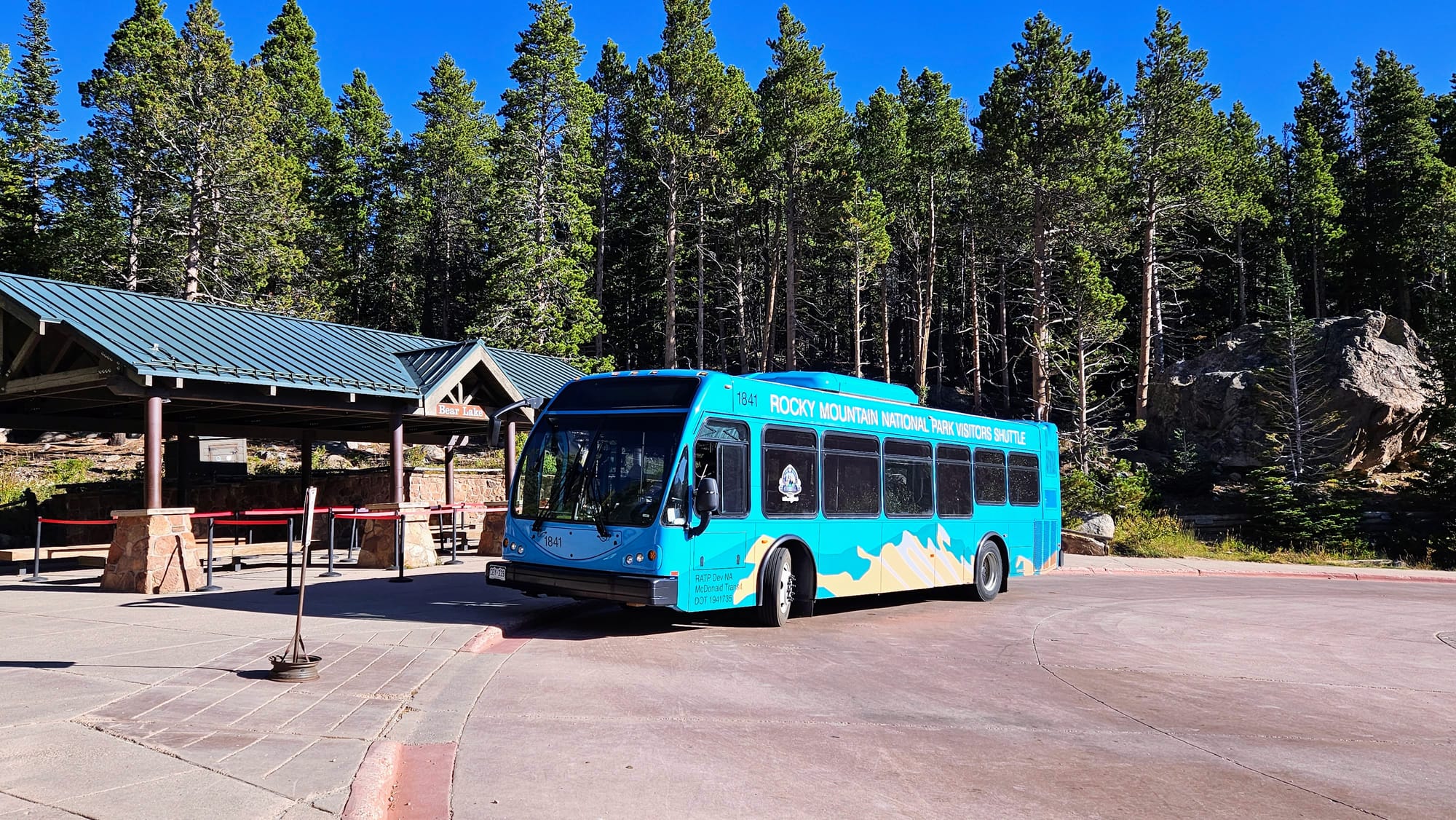
Whether this is the norm or not, just think about if we had decided not to visit these wonderful parks, on the chance they would be too crowded. We would have missed out on some of our favorite travel experiences! If people really want to avoid National Parks, then we suppose that means more room for those of us who truly love and enjoy them.
"If you have a good cellular hotspot, you won't need Starlink."
Oh, please, stop the madness! RVers have gotten into many pickles because influencers come out with a "new device that will make Starlink obsolete," and it turns out the device runs on cellular. Let's say it loudly for the people in the back: CELLULAR AND SATELLITE INTERNET ARE NOT THE SAME THING! Where connectivity stands currently in the US, many places still do not have good cell service. We have had campgrounds all across the country that fall into this category. We bought Starlink early on because we wanted multiple internet options. This made sense for us because we both work from the road. We initially thought that Starlink would serve as our backup because our cellular internet would work in most places and would have less interruptions. In reality, Starlink is our primary source of internet. The speeds are superior, even if we do get interruptions once in a while. The only time we prioritize our cellular internet is when we're in a densely forested area and need to use video calling or some other tech that requires continuous connectivity. Otherwise, a short interruption here and there is no big deal. Also, more and more satellites are being launched all the time, so the issues with overused satellites are becoming less common. Even though Starlink has changed its offerings and plans a lot since we got ours, we stand by our decision. It has changed how we work from the road in all the best ways. If you need good internet and camp in places without cell service, Starlink is the way to go. Over time, other options might become available, and when they do, actual good advice might come out. Until then, ignore the hype. Cellular is cellular. Doesn't matter if it's 4G, 5G, or abracadabra-G with a range booster. It won't work in places with no cell service. Period.
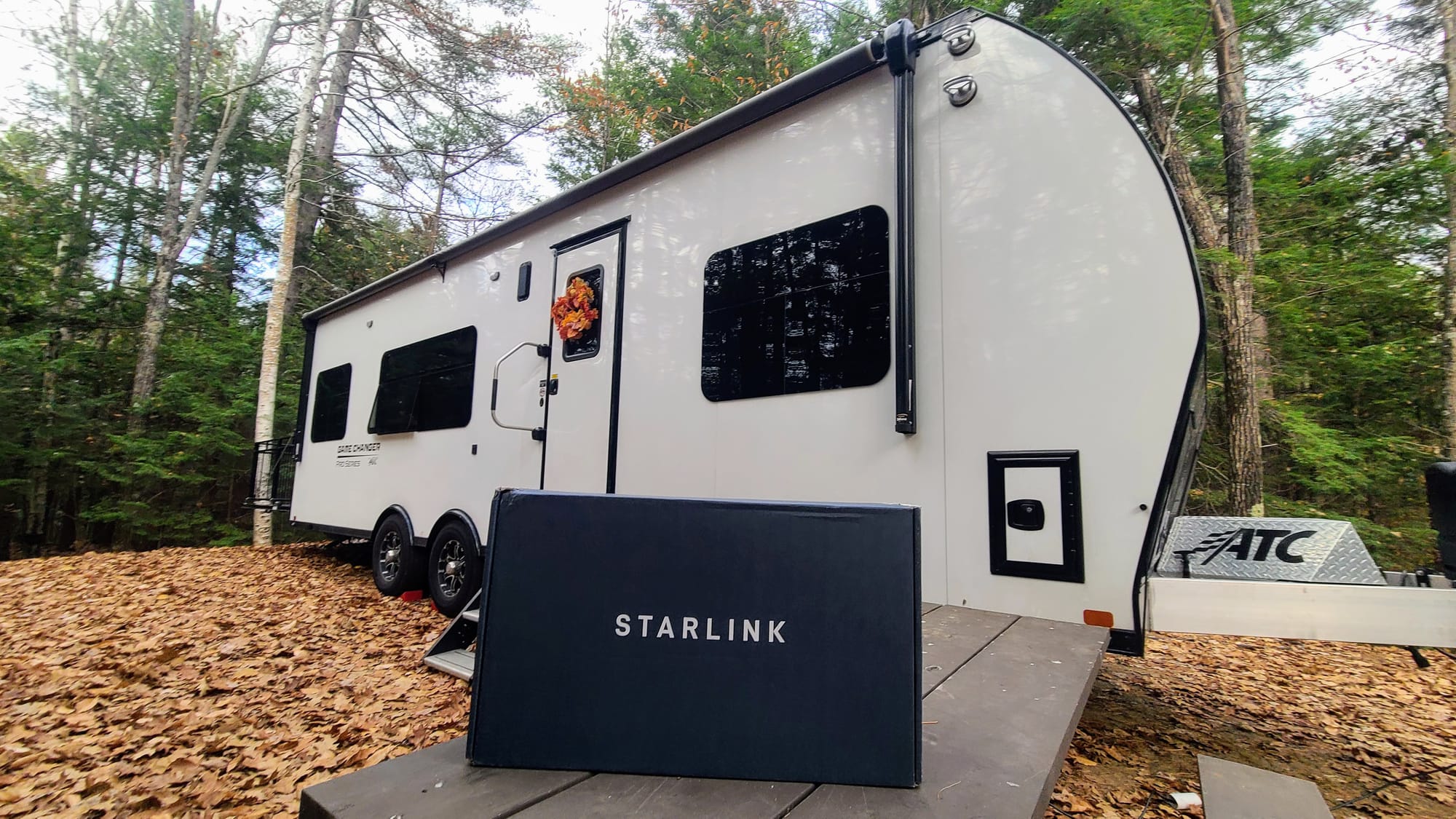
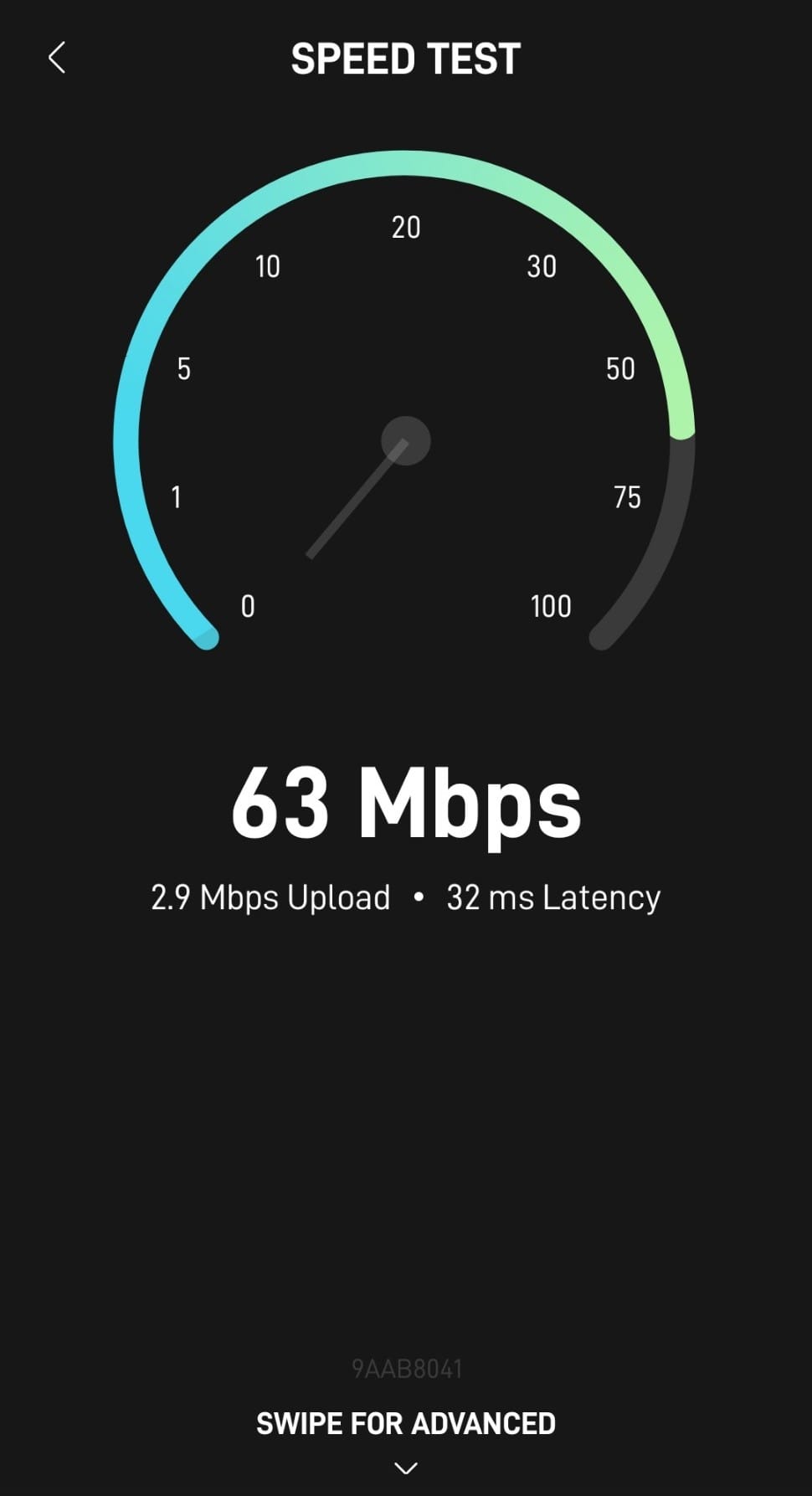
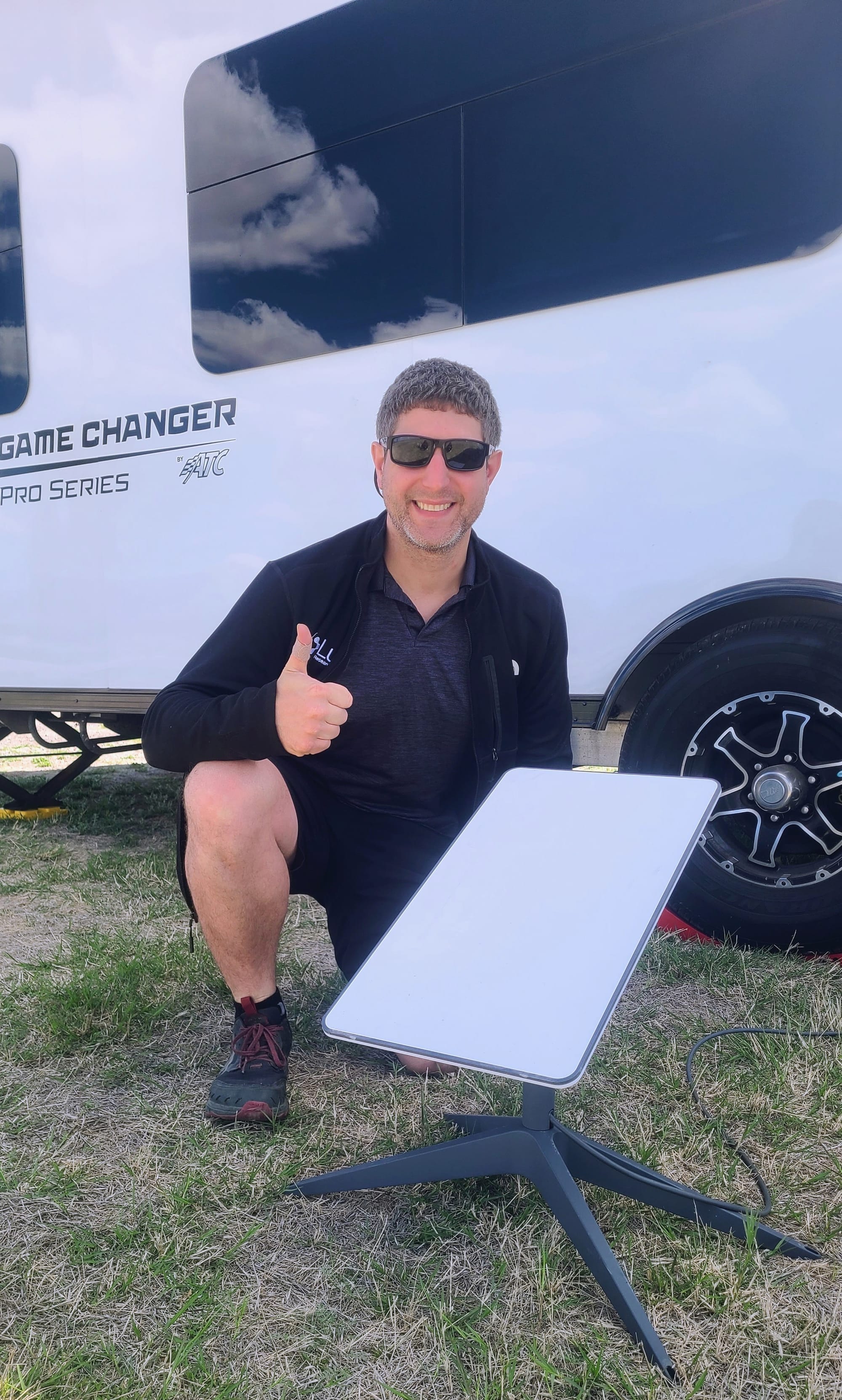
"You won't automatically save money living on the road."
We ran calculations from the start and always said that we would have to try to not save money on the road. This has continued to be true over the past 2.5 years. This mostly has to do with our expensive cost of living before we launched. We lived in Massachusetts, where costs are high. Despite always only having one vehicle for the two of us, we had our mortgage and utilities. Anthony had costs of commuting into Boston for work. Simply buying everyday essentials was more costly in Massachusetts than other places in the country. We don't travel frivolously. We typically keep our nightly campsite costs at $35 or under on average, with a resort splurge here and there. We invested in solar so that we could boondock without using too much generator fuel. We made sure to clear most our debt before we hit the road, and our income has increased since we launched. These factors and more contribute to our ability to save money on the road, and we know that this is our situation and not necessarily everyone else's. We agree that the meaning behind this advice is good. Living in an RV isn't going to necessarily be more or less expensive than living in a house. Everyone needs to run their own calculations based on their specific circumstance. However, what irks us is the number of people who say you "can't" save money living on the road, because this is simply untrue. We've proven that.
"Traveling full-time is ridiculous."
We were lucky to not get too many nay-sayers when we announced that we were going to RV full-time, but that doesn't mean we escaped all negative comments. Thankfully, more people simply said, "I could never do that." We appreciate that wording because at the end of the day, this lifestyle isn't for everyone, but we hope that people will except our choice of how to live our lives. The reactions went in the other direction, too. People told us "You're going to love it," but they couldn't actually predict this either. We have plenty of RV friends who tried full-timing and realized it wasn't for them. We approached full-time RV life very thoughtfully. We did tons of research, we downsized over many months, and we've always showcased the reality of this lifestyle, both the good and bad. We understand the trade-offs involved in living this way, and we are transparent about them. However, we also defend this lifestyle because to us, it's been the best choice for us, at this time in our lives. We want everyone to realize their dreams, whether that's a life of travel, a dream home, or something else. Accepting others' choices is what really matters.
